
- GENERAL TRAVEL


10 Annoying Travel Problems and Their Solutions

Raised in a multicultural family in the colorful Chicago suburbs, Raquel’s greatest joy is ...
- button]:border-none [&>button]:bg-white [&>button]:hover:cursor-pointer [&>button]:hover:text-cyan-400"> button]:hover:text-cyan-400 [&>button]:bg-white hover:cursor-pointer" height="1em" width="1em" xmlns="http://www.w3.org/2000/svg">
It’s been a glorious day exploring Thailand’s ancient temple ruins. You arrive at your hotel room with a phone full of pictures and rich stories that will live on forever. But when you finish emptying your day bag, something isn’t there.
Your passport is gone and in its place is one of a traveler’s worst nightmares and biggest travel problems.
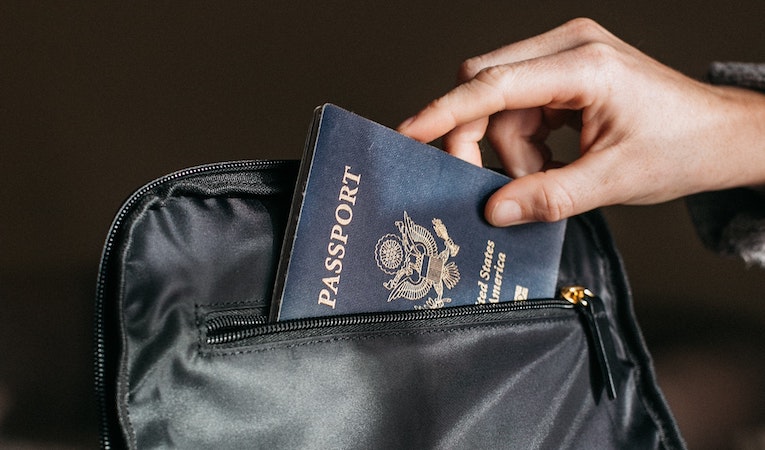
Don’t lose your passport. We repeat: DON’T LOSE YOUR PASSPORT.
With just a bag or two in tow and (sometimes) cultural and linguistic barriers, issues that pop up while traveling overseas can often seem magnitudes worse than if they were to happen at home. And when you travel to unwind, grow, learn, or tackle new adventures, these little snafus are the last things we want to get in our way.
As Albert Einstein once said, “A clever person solves a problem. A wise person avoids it.” So in the spirit of a literal Einstein, let’s get familiar with some of the most common travel problems and how to solve them (or better yet, avoid them).
Is there a way to avoid annoying travel problems?
The unpredictability of travel lends to its charm and feeling of adventure. If a sprinkle of risk is an absolute no-go, we’d all be taking ultra-planned river cruises with our grandparents. Yet however thrilling unpredictability is, annoying travel problems are never welcome.
The best way to avoid most inconvenient headaches when out and about around the world is to overplan and prep before you even leave home. While you can’t foresee what will happen, you can at least have a backup plan or course of action lined up if you do find yourself in a pickle.
Familiarize yourself with a destination’s transportation system, the area around your accommodations, and what you’re able to buy in stores abroad—for example—all before arriving. Triple checking the ol’ packing list doesn’t hurt either .
10 common travel problems and how to deal with it
So, what kinds of bumps may pop up unexpectedly throughout your travels? Let’s dive in.
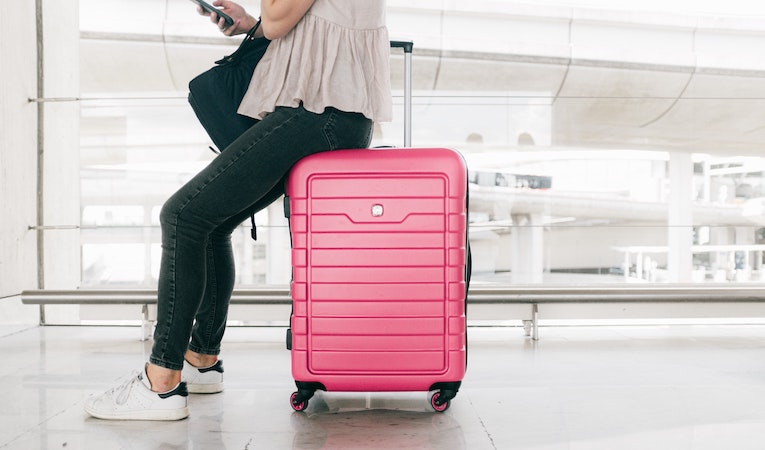
Is there a worse headache than the one caused by lost luggage?
1. Canceled, delayed, or unreliable transportation
No matter where you travel in the world, transportation will never be perfect—except maybe in Japan where trains’ annual average delay is mere seconds. From missed transfers to routes that have temporarily changed with a note posted in a language you don’t understand, there are tons of ways transportation issues can botch your journey.
- How to solve it: Transportation snags are largely out of your own hands, so avoiding them may not always be possible. Instead, the best way to minimize the impact is to seek out alternative routes to arrive at a destination just in case. Familiarize yourself with all possible options like a bus vs train, and what to do if your plans get altered. Knowing who to contact about a canceled train beforehand, for example, will help you act quicker and be less stressed if faced with that situation.
2. Forgotten can’t-live-without items
You’re settling into a hotel room after a whole day of flying and fighting jet lag only to find that your retainer didn’t make it into your suitcase. Now that you think of it, it’s still lying at home on the bathroom counter.
Universal items like toothbrushes or clothes are easy to replace wherever you go at the drop of a hat. However, personalized life companions like prescription meds, eyewear, or a phone charger with a specific voltage may not be readily available in your destination.
- How to solve it: This may go without saying, yet it’s not always a rule of thumb that travelers follow: Create a packing list and double check before leaving! Yes, that means start writing down your absolute essentials days or even weeks before your departure to make sure you account for everything. Leaving it all to your memory in a last minute packing spree won’t do you any favors.
3. Currency exchange

Do yourself a favor and have a bit of the local currency with you before you arrive abroad.
Exchanging currency has gotten so much easier over the past few years (good riddance, traveler’s cheques!). However, each country and region still has its own process for exchanging currency, so bringing a wad of cash with you and crossing fingers that it will all work out may not be your best bet. In some areas, traveling with that much cash on hand may raise safety concerns as well.
- How to solve it: Check in with your home bank to see what your options are for your target destination. In some cases, you can easily access an ATM with a debit card abroad for minimal fees. Some banks will also exchange money for you before you leave if you request it ahead of time, so you have a bit of cash on hand to navigate the first few days on a trip.
READ MORE: Is it Better to Travel with Cash or Card?
4. figuring out where and when to get food and water.
To be clear, you should definitely have access to drinking water and food anywhere you go! This common travel problem refers specifically to whether you can drink the tap water and what food sources you’re advised to avoid. Free drinking water also isn’t as widespread around the world as it is in the United States, especially in water-scarce regions.
- How to solve it: If you’re participating in an organized travel program like study abroad or a language school abroad , you’ll have great resources available already to ask about safe food and water sources. Your accommodations, such as a hotel or host family, can also give the skinny on whether street food is a yay or nay and if the tap is trusted. When in doubt (say you’re super off the grid), just stick to prepackaged food and beverages.
5. Knowing local emergency protocol
Knowing to dial 911 in an emergency is a no-brainer home, but what if you find yourself in need of help abroad ? Also, who do you contact if you are victim to a crime, lost valuables, or are hurt? While traveling is usually a positive adventure for most, these annoying travel problems can happen. And the last thing you need in an emergency is to feel lost and alone.
- How to solve it: Of course, you should definitely acquaint yourself with the local emergency phone numbers. If there is a language barrier and no one that can help translate, another great option is to know the contact for your embassy or consulate in your country of stay. Your embassy can act as a liaison between you and local authorities, as well as help you access medical care among other services.
6. Luggage weight limits
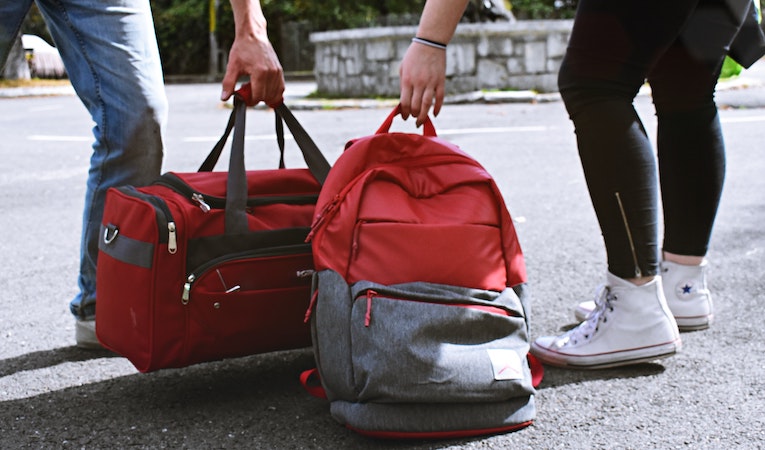
Don’t overpack, otherwise you might be stuck paying extra baggage fees.
Weight restrictions are a big limiting factor when traveling by air. But honestly, who can blame you for wanting to bring back an entire new wardrobe from Italy? If you’re hopping around to multiple destinations, e.g. adventure travel or a gap year , schlepping 100 lbs. of stuff around with you isn’t exactly ideal either.
- How to solve it: Ah, the internet. It provides so many wonderfully helpful free resources for how to pack light. Versatility is the way to go with clothes, but also think of multipurpose shoes, as multiple pairs of footwear can really add on the pounds. Another great packing hack is to bring a single suitcase with an empty duffle bag inside so you are armed and ready to bring back all the new goodies you buy abroad.
7. Gaps between check-out and check-in times
You’ve got a train to catch to your next location in the afternoon, where the check-in time is hours later, but you need to check out of a short term rental by 11:00 a.m. That leaves a few hours during which you’re on your own with bulky luggage and nowhere to go. Frequent travelers are likely quite familiar with these awkward gaps between check-out and check-in times.
- How to solve it: Accommodation hosts can be quite flexible when there isn’t another guest immediately arriving the same day, so see if you can get a check-out extension. Other great options are to ask about luggage storage at your accommodation (usually available at no additional cost) or even at bus and train stations.
READ MORE: Choosing the Right Travel Accommodations
8. packing for multiple climates.
Whether you’re staying put for a semester or year, or have multiple locations bundled up into one trip, you’ll likely face a range of climates. While keeping clothes for more than one season at a time in a single closet is already a struggle back home, this only gets all the trickier when you have to whittle that down to a few tops, bottoms, and shoes.
- How to solve it: Start a packing list with your bare essentials that you’ll need in any season or climate zone. Then, think about how you can get the most functionality out of the items remaining. Packing gurus typically advise travelers to lean on layers, so you can get full use out of each and every item.
9. Language barriers

Nowadays, it can be a little easier to find your way around language barriers.
Even though technology has evolved to the point of instant translation on a phone (admittedly, the translation isn’t always perfect), language barriers are still prevalent. Walk into a restaurant and sit down to order, then WHOOSH—you’ve never wanted pictures on a menu more badly in your whole life. The server comes over to ask something and BAM—maybe you aren’t so hungry after all...
- How to solve it: With simple Google Translate and other apps , you can overcome some of the most common travel problems with understanding signs and written text. When it comes to spoken language, having a travel program, host family, local friend, or even buddy who’s studied the local language more than you will certainly be helpful.
10. Locals who only want to speak English
On the flip side of traveling on a lonely English-speaking island, there are the language enthusiasts who have diligently studied the language of their destination for years. But, uh-oh, someone you proudly ask a question to senses an accent or maybe a grammar mistake. That’s it, they answer in English and now there’s no going back.
- How to solve it: Practice makes perfect with learning new languages, but every so often you’ll come across the stubborn English-enthusiast who just wants to save you the trouble of speaking their native tongue. They mean well, but it’s not doing your fluency any favors by switching to English. If you do get a reply in English, stay firm and keep going in the original language. That way, the person will understand that you know more than they thought and you’re comfortable sans English.
If you’re ready to go abroad, our FREE Online Advisor will send you 5 personalized travel program matches
Don’t worry—you can learn how to handle the biggest travel problems.
For first time travelers , the possibility of meeting with common travel problems can be overwhelming. But once you become a seasoned globetrotter, you’ll know how to dodge issues and solve them like a pro. And who said you have to go at it alone?
Visit the GoAbroad.com Covid Hub for help safely planning your next trip
Look for the Perfect Program Abroad Now
Related Articles

By Elizabeth Gorga | 3 days ago

By Jhasmine Wade | 6 days ago

By Julie Ball | July 18, 2024
Popular Searches
Study abroad programs in italy, study abroad programs in spain, marine biology study abroad programs, study psychology abroad, fall study abroad 2024, spring study abroad programs, recommended programs.

2581 reviews
International TEFL Academy

1695 reviews
International Volunteer HQ [IVHQ]

2044 reviews
MAXIMO NIVEL

660 reviews
Intern Abroad HQ
For Travelers
Travel resources, for partners.

© Copyright 1998 - 2024 GoAbroad.com ®
- Study Abroad
- Volunteer Abroad
- Intern Abroad
- Teach Abroad
- TEFL Courses
- Degrees Abroad
- High School Abroad
- Language Schools
- Adventure Travel
- Jobs Abroad
- Online Study Abroad
- Online Volunteer Programs
- Online Internships
- Online Language Courses
- Online Teaching Jobs
- Online Jobs
- Online TEFL Courses
- Online Degree Programs
The 18 Worst Air Travel Issues And How To Resolve Them
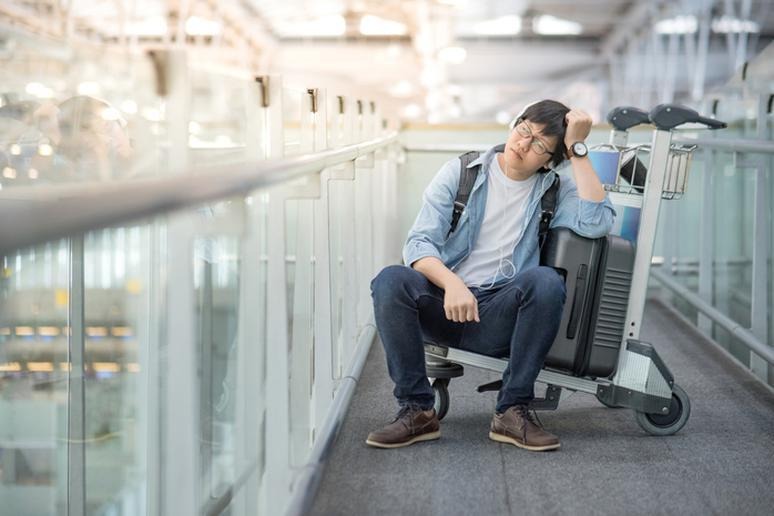
From time crunch and flight delays to waiting lines and cumbersome carry-on luggage , airplane travel can stress even the most nomadic traveler. It's easy to let the hassle get the best of people, but knowing how to manage airline obstacles will help relieve the tension and get you to your destination with minimal stress . Sharon Schweitzer, an international etiquette expert, author, and the founder of Access to Culture , who is also a frequent international flyer, offers some advice on the most common air travel issues and how to resolve them.
Making it through security
To minimize time spent at the security checkpoint, be prepared and travel light, minimizing obstacles to safe, smooth travel. Make the security checkpoint go by quickly by emptying pockets ahead of time, removing laptop from bags, and removing shoes and belts to not only make it faster for you, but for those behind you. Also make sure that all liquids are in the appropriately sized containers before heading to the airport. Remember to always be kind and respectful to others because everyone has a flight to catch too- not just you.
TSA and long lines
While TSA screenings are an important safety measure, the long lines and extra time spent during bag searches and pat-downs can be a hassle. Remember that being compliant will get you on the plane faster. Answer any questions the officer may have and be willing to have your bags searched. Any reluctance to do so could cause suspicion and may take more of your time.
Overbooking
Airlines often compensate passengers who volunteer to give up their seat by paying for all expenses such as hotel and meals, in addition to giving them a flight voucher. If you are in absolutely no rush to get to your destination, it may be something to consider. However, if you're one of the ones chosen to give up your seat , but you have to be on that flight for other commitments, explain your situation and politely refuse, all while maintaining an amicable tone.
Overweight luggage
If a crew member at the check-in desk tells you that your bag is overweight and you have to pay an extra fee, kindly ask if you can step aside to take some of your belongings out and place them in another bag or suitcase. Once they give you the okay, look behind you and signal to the next person in line that they can go. This proper airline etiquette will ensure you're being conscious of others' time.
Annoying passengers
If you have a small disagreement with another passenger , first try to resolve it among yourselves. If the problem escalates or continues, ask the flight attendant for assistance. In manners such as putting your tray up and down, turning off you phone or any other flight procedure, you should not question the crew. However, if there is a customer service concern, you can politely speak to the head staff
Crying kids
Crying infants should be tolerated; the mother wants them to stop crying way more than you do. Refrain from giving the parents long glares – they know their child is being loud and your stare won't stop it. In the case of older children, try blocking them out with headphones or earmuffs before talking to the parents if the problem persists.
Uncomfortable seating situation
You have a right to be comfortable, and issues such as seat-kicking, inconsiderate neighbors, and loud media should be addressed by a flight attendant . The staff is trained on how to deal with these problems in the most inoffensive way possible. Tell a member of the crew about your problem and they will take care of it.
Trying to sleep
Certain methods can do the job, in case you can't afford to upgrade, and you can trick your body into sleeping — and people into not disturbing you . Some of the hacks may be obvious — no coffee, alcohol, or junk food. Others, such as grapping a sleep-inducing snack or not picking a seat in the front of the plane, are often overlooked . Don't be shy, and recline your seat as much as possible; cover your face to block all kinds of light affecting the body's ability to produce melatonin; make sure you're hydrated enough ; and forget about entertaining yourself with the small screens in front of you.
Pets as passengers
You want to ensure that Fido or Felix is safe and comfortable, but some airlines make this tricky and very difficult . Also, advance arrangements are not guarantees that your pet will travel on a specific flight. Typically, airlines require pet health certificates that are no older than 10 days, even if the country of your destination accepts an older one. Several general guidelines will help you make your companion as relaxed and content as possible.
Small children as passengers
There is nothing glamorous about traveling with toddlers. The most vulnerable age is when they can walk but can't stand to sit down for more than five minutes. Meltdowns over toys, naps, food, safety gear, entertainment options – any one of these very few issues can go wrong in a second. Staying calm is a challenging task that can be prevented with proper preparation . This often means advanced planning in terms of clothes, car seats, strollers, toys, and even activities during flights and layovers.
Delays and cancelations
You can't always rely on leaving on time. Delays, which can result in missed connections, and cancelations are, unfortunately, part of everyday travel. They often happen without any warning, too. So, what do you do when your flight is delayed indefinitely ? Stay hydrated, use the Wi-Fi, take a leisurely stroll around the airport, go to an airline club if you are a frequent flyer, and even go out of security. Yes, you can, if and only if you have a boarding pass for the next flight.
Getting reservations wrong
Misspelling a name or a date of birth happens all the time whether it's because of laziness, fatigue, stubby fingers, or a small keyboard. And technical errors are not unheard of. Mistakes can lead to difficulties obtaining your ticket and boarding passes. Airlines can even charge high fees. Review any booking – two or three times, reading out loud – before you enter your credit card information. Sometimes you can even make changes, at no additional cost, within 24 hours. So review that info again in a day.
Rude customer service representatives
Most people have come across a not-so-helpful gate agent. Airlines employees can be flat-out rude, especially in treating delayed passengers. While it's true that they personally can't do anything about a weather delay, for example, they don't have to treat people badly. What you can do about it is be nice. It's hard to be ride to a person who smiles at you and treats you with respect.
There are no federal laws requiring airlines to provide passengers with money or other compensation when their flights are delayed. Each airline has its own policies, according to the Department of Transportation. In some situations, such as significant delays, you may be entitled to a refund, including a refund for all optional fees associated with the purchase of your ticket. If your flight is cancelled and you choose to cancel your trip as a result, you are entitled to a refund for the unused transportation. Also, under most circumstances, if you book a ticket and cancel within 24 hours, you're entitled to a full refund.
Lost and/or forgotten documents
You can't find your wallet, ID or passports. If you are abroad, call the embassy right away. You may even be able to get a replacement quickly. (Make copies of any forms of ID, but also make sure you have embassy and/or consulate numbers with you before you leave.) TSA will ask you some questions that will help them verify your identity. Just make sure you make it to the airport as early as possible so you have time to sort it all out.
Wrong terminal or gate
It happens all the time. The boarding pass says one thing, the table another. Also, some airlines have planes at several terminals ; be sure to check which one exactly. And when it comes to Chicago, for example, don't assume everyone flies in and out of O'Hare. Southwest only uses Midway. Carefully take a look at the information on your ticket and check online for possible changes. Check the airlines social pages as well because they may tweet or post about them.
Inappropriate remarks
The airport is not an entertainment venue. You should simply assume that security staff have no sense of humor. Don't joke about having a weapon, a bomb, or anything that can be construed as a threat. You will be pulled aside at the very least; you may even be detained. Not the mention that all of these shenanigans will result in delays going though TSA checkpoints .
It’s hot in here!
Have you ever had the nightmare experience of being on a plane, which is ready to take off, when suddenly, the flight is delayed for hours but passengers are not allowed to get off, had to stay in their seats with the seatbelts on, and no food or drinks were served, and the AC is not on? Everyone is sweating, getting dehydrated and annoyed. If not, you are among the few who don't know what that's like. Hopefully, this never happens to you, but be prepared just in case. Bring snacks, water and entertainment. Download what you'd like to see beforehand so you are dependent on complimentary Wi-Fi .
- Credit cards
- View all credit cards
- Banking guide
- Loans guide
- Insurance guide
- Personal finance
- View all personal finance
- Small business
- Small business guide
- View all taxes
You’re our first priority. Every time.
We believe everyone should be able to make financial decisions with confidence. And while our site doesn’t feature every company or financial product available on the market, we’re proud that the guidance we offer, the information we provide and the tools we create are objective, independent, straightforward — and free.
So how do we make money? Our partners compensate us. This may influence which products we review and write about (and where those products appear on the site), but it in no way affects our recommendations or advice, which are grounded in thousands of hours of research. Our partners cannot pay us to guarantee favorable reviews of their products or services. Here is a list of our partners .
12 Ways to Make This Summer’s Travel Less Bad

Many, or all, of the products featured on this page are from our advertising partners who compensate us when you take certain actions on our website or click to take an action on their website. However, this does not influence our evaluations. Our opinions are our own. Here is a list of our partners and here's how we make money .
Travel is back, but that doesn't mean it's easy (or cheap).
Airport chaos has made headlines more than a few times over the past couple of years, but if you opt to drive, you'll have to contend with soaring gas prices. Plus, hotel prices have hit all-time highs , even though many properties cut some services like daily housekeeping.
Despite all those deterrents, traveling might be non-negotiable. You might have five weddings to attend this year. Then there’s the work offsite to finally meet the coworkers you’ve never met face to face. And now that your youngest kids are vaccine-eligible, you owe them that (expensive) Disney trip they’ve been begging for.
Ah, suddenly the wanderlust you felt when envisioning your dream “revenge trip” back in 2020 has been zapped away, instead replaced by anxiety and plenty of unwanted expenses.
But it doesn’t have to be that way. Combine solid planing with a healthy mindset, and you might skip the common problems with traveling. Who knows? This summer vacation might become the best trip ever.
1. Acknowledge your trip won’t be perfect
Go into your trip with realistic expectations. Delays are all but inevitable, and things might be more expensive than you budgeted for. If you go in knowing the caveats, you’ve already set yourself up better to avoid disappointment.
With that, focus on these next tactics that you can control.
2. Book flights with lower odds of a delay
As if traveling wasn't stressful enough right now, it’s impossible to guarantee your flight won’t be delayed, as even a private jet could still be subject to air traffic or weather delays. But certain booking strategies can at least increase the odds of on-time arrival:
Fly earlier in the day before a previous flight can delay your plans.
Avoid layovers if your budget and route allow.
Book with airlines with strong histories of on-time arrivals (Delta Air Lines, Hawaiian Airlines, American Airlines and United Airlines rank highest, according to data from the U.S. Bureau of Transportation Statistics).
3. Apply for TSA PreCheck
One of the easiest airport lines to avoid: the traditional security line. With TSA PreCheck membership, you can access dedicated, often-shorter lines that enable you to flow through faster. Plus, you won’t need to remove your shoes or laptops.
Applying for membership takes time, and perhaps money, too. But carving out time to apply now is likely better than cutting into your precious vacation time by standing in an annoying security line. The application fee is $78, but many travel credit card benefits include TSA PreCheck reimbursement .
4. Don’t check bags
Another line to skip? Bag check. While you can sometimes skip this line by holding airline elite status , the easiest way to skip it and avoid unnecessary travel obstacles is by not checking bags, period.
There are plenty of other reasons to pack light. There’s no risk of checked luggage getting lost if you fly carry-on only, and you won’t have to stand at the baggage carousel on the other end of your flight. And should you need to make a last-minute switch to another flight, you won’t be held back because your stuff is stuck on another aircraft.
5. Do pack a 'delay emergency' kit
While packing light is essential, make space for some essentials to account for one of the all-too-common travel problems: delays or other inevitable travel snafus. Things to include:
Packable snacks: “Hangry” travel can turn a bad trip worse. Jerkies and protein bars are filling, without filling up too much space in your bag. Plus, you’ll avoid long lines at airport cafes.
Portable chargers: If flights are delayed and the airport doesn’t have power outlets, you’ll stay plugged in.
Copies of your passport, COVID-19 vaccine proof and other important records: You might not necessarily need physical copies, but digital copies don’t take any space and might come in handy.
Entertainment: Bring a book or laptop so you’ve got entertainment if you get delayed.
6. Gift yourself lounge access
Speaking of what to do during a delay, the airport lounge might be your oasis. Airport lounges, which can typically be accessed via programs like Priority Pass (membership is sometimes included with certain credit cards ), can sometimes make a delay not merely tolerable, but actually enjoyable.
Lounges vary in quality, but the best ones have luxuries like nap suites, Peloton bikes, showers and buffets. Consider travel hassles like delays simply as opportunities to treat yourself to another complimentary cappuccino.
7. Let your phone assist you
Smartphone apps can simplify travel. Most airlines and hotels now offer online or in-app check-in, upon which you’ll receive a mobile boarding pass or virtual room key to bypass the physical counter.
Just this year, Starbucks rolled out the ability to order ahead from many airport locations, removing yet another irritating line you might otherwise stand in.
Apps can also notify you of a flight delay, help navigate new routes due to traffic, and find cheap gas stations .
8. Reserve the 'pay later' rate, even if it’s more expensive
Many rental car companies and hotels allow you to reserve now, but don’t require payment until you arrive. Sometimes they offer a discount for paying upfront, which can be worth it if you’re certain you’ll make the trip.
But given the uncertainty of travel issues these days, it might be worth paying what’s likely only a small percent more. The trade-off — no headache of trying to get your money back — can be worth it.
Plus, if prices drop between booking and check in, you can rebook the same reservation at a lower rate. In fact, such occurrences are surprisingly common. Hotel room rates were cheaper 73% of the time when booked 15 days out versus four months out — with an average savings of 13% over the past three years, according to a 2021 NerdWallet study .
9. Consider an all-inclusive or group tour
Group tours and all-inclusives can sometimes be more expensive upfront, but they may entail less headache given there are fewer reservations to book (and worry about going awry). When you book guided group vacations, the trip is in your guide’s hands once you arrive.
Trip challenges — whether a vehicle breakdown, unanticipated closure or something else — are almost inevitable these days. But if the trip is up to the guide you hired, then problem-solving is largely up to them, too.
10. Have travel insurance
Travel insurance can help you get money back for canceled or interrupted trips. It can also fund expenses like additional clothing if your luggage gets lost or an extra hotel room if you need to stay overnight due to a flight delay.
Some credit cards offer travel insurance on trips purchased with that card.
Read the policy, though, as many plans come to your rescue only if you experience a covered reason, like an injury or jury duty. You generally can’t expect a refund if you cancel “just because,” unless you purchase the more expensive “ Cancel For Any Reason ” coverage. And even still, this more-flexible coverage typically only refunds about 50% to 75% of the total cost, according to the National Association of Insurance Commissioners.
11. Tip where appropriate
Travel is already expensive, and tipping can sometimes feel like something you do begrudgingly, especially when you’ve already been hit by rapid inflation, resort fees and maybe even a COVID-19 surcharge.
Tipping can help a likely overworked employee (as of May 2022, leisure and hospitality employment still remains roughly 8% below pre-pandemic levels, according to the U.S. Travel Association). Likewise, your generosity might literally pay off for you, too.
Tipping the cleaning staff at the hotel breakfast buffet might net you a complimentary premium drink from the coffee bar. Some cash for the hotel housekeeper might mean chocolates and towel animals on your bed.
12. Be kind to workers and fellow travelers
You don’t necessarily have to tip to get superior service — kindness is free. Berating the gate agent because your flight was delayed won’t get you there any faster (not to mention it’s likely not their fault the flight is late). But, being nice means they’re more likely to pull some strings to get you on another flight.
And try to be patient with and considerate of other travelers. For a lot of rusty travelers, it’s their first trip in years. And for some other travelers, they’re flying to their fifth wedding of the month. They deserve your sympathy, too.
How to maximize your rewards
You want a travel credit card that prioritizes what’s important to you. Here are our picks for the best travel credit cards of 2023 , including those best for:
Flexibility, point transfers and a large bonus: Chase Sapphire Preferred® Card
No annual fee: Bank of America® Travel Rewards credit card
Flat-rate travel rewards: Capital One Venture Rewards Credit Card
Bonus travel rewards and high-end perks: Chase Sapphire Reserve®
Luxury perks: The Platinum Card® from American Express
Business travelers: Ink Business Preferred® Credit Card

on Chase's website
1x-5x 5x on travel purchased through Chase Travel℠, 3x on dining, select streaming services and online groceries, 2x on all other travel purchases, 1x on all other purchases.
60,000 Earn 60,000 bonus points after you spend $4,000 on purchases in the first 3 months from account opening. That's $750 when you redeem through Chase Travel℠.

1.5%-5% Enjoy 5% cash back on travel purchased through Chase Travel℠, 3% cash back on drugstore purchases and dining at restaurants, including takeout and eligible delivery service, and unlimited 1.5% cash back on all other purchases.
Up to $300 Earn an additional 1.5% cash back on everything you buy (on up to $20,000 spent in the first year) - worth up to $300 cash back!

on Capital One's website
2x-5x Earn unlimited 2X miles on every purchase, every day. Earn 5X miles on hotels and rental cars booked through Capital One Travel, where you'll get Capital One's best prices on thousands of trip options.
75,000 Enjoy $250 to use on Capital One Travel in your first cardholder year, plus earn 75,000 bonus miles once you spend $4,000 on purchases within the first 3 months from account opening - that’s equal to $1,000 in travel.

ONE CHEL OF AN ADVENTURE
10 common travel problems (and how to solve/prevent them).
Traveling is undoubtedly exhilarating, but let’s be real—it’s not always smooth sailing. From unexpected mishaps to downright frustrating situations, we’ve all encountered our fair share of travel woes. With that in mind, here are some tried-and-true tips to help you navigate through 10 common travel problems and their solutions!
Most Common Travel Issues + Problems
This site contains affiliate links. I may receive a commission for purchases made through these links at no additional cost to you.
1. Getting Lost While Traveling
Whether it’s wandering aimlessly in a maze-like city or taking the wrong turn on a remote hiking trail, getting lost is practically a rite of passage for travelers.

Sometimes, getting lost can lead to some of the most memorable experiences! Embrace the moment, ask locals for directions, use maps (both digital and paper), and consider downloading offline maps to your phone before setting off.
2. Getting Mugged While Traveling
Safety should always be a top priority while traveling. Unfortunately, muggings can happen, especially in tourist-heavy areas. Stay vigilant, avoid flashing valuables, use discreet/theft-proof bags , and trust your instincts. It’s also wise to split your cash and keep copies of important documents in a separate location.
Men: You should definitely think twice about wearing a nice watch if traveling to Europe (and in general) — there has been a rise in luxury watch theft lately !

In case the worst happens and you do find yourself in this situation, cooperate and prioritize your safety above all else .
Related Post: How to Stay Safe While Traveling
3. Losing Your Phone
In today’s digital age, losing your phone can feel like losing a limb. But fret not, there’s hope! Before departing, install tracking apps and enable remote wiping features on your device, especially if you store banking info and other sensitive info on your device (as most of us do).
Additionally, keep a physical backup of important information such as emergency contacts and reservation details. I typically bring one of my old phones with me as a back up just in case.
4. Getting Sick in an Unfamiliar Place
Nothing puts a damper on travel plans like falling ill. To prevent sickness , stay hydrated, eat well-balanced meals, and get plenty of rest. Pack a small first-aid kit with essential medications, and consider purchasing travel insurance for added peace of mind.

If you do fall ill, don’t hesitate to seek medical assistance or rest until you’re feeling better. Don’t make the same mistake I did in Southeast Asia , it could have been really bad!
5. Language Barrier
Ah, the beauty of language diversity! While it enriches our travel experiences, it can also pose challenges. To avoid issues, try learning a few basic phrases in the local language, utilize translation apps , and embrace non-verbal cues like gestures and smiles. Remember, a genuine effort to connect goes a long way!
6. Feeling Lonely
Solo travel can be incredibly rewarding, but it’s not uncommon to feel lonely at times. Combat loneliness by staying in social accommodations like hostels or joining group tours and activities. Embrace opportunities to meet fellow travelers, strike up conversations with locals, and stay connected with loved ones back home.
7. Running Out of Money
Budgeting woes can put a damper on even the most meticulously planned trips. To avoid running out of funds, create a realistic budget before departure and track your expenses along the way. Look for ways to save money , such as cooking your meals or opting for budget accommodations.
And always have a backup plan, whether it’s a stash of emergency cash or access to financial assistance.
8. Missing a Flight
Missed flights are every traveler’s nightmare, but they’re not the end of the world. Stay calm, contact your airline immediately, and inquire about alternative options.

Travel insurance can often cover additional expenses incurred due to missed flights, so be sure to review your policy.
9. Travel Sickness
Motion sickness can turn even the most scenic journey into a nauseating ordeal. To combat travel sickness, sit in the front or middle of vehicles, focus on the horizon, and avoid heavy meals before travel.
Over-the-counter medications like Dramamine can also provide relief for mild cases. And don’t forget to take breaks and get some fresh air whenever possible.
10. Losing Luggage
Arriving at your destination only to find your luggage missing is undoubtedly frustrating. To minimize the risk, pack essentials in your carry-on and use luggage tags with your contact information. And I always, always, ALWAYS have an Apple Airtag in my luggage so I can see exactly where it is at all times!
If your luggage goes astray, file a report with the airline immediately and keep all relevant documentation. Most airlines have protocols in place to track and reunite lost luggage with its owner.

Traveling is a rollercoaster ride filled with highs and lows, but it’s the challenges that make the journey worthwhile. By arming yourself with knowledge, preparation, and a positive attitude, you can overcome these Common Travel Problems.
So, embrace the adventure, stay curious, and remember that the best stories often arise from the most unexpected moments. Safe travels, fellow adventurers!
If you have a question, leave a comment below or send me a DM on Instagram !
Related Posts:
- How to Stay Safe While Traveling
- 12 Tips for Overcoming Anxiety While Traveling
- How to Stay Healthy While Traveling
You Might Also Like:

How to Help Travel Anxiety: 12 Tips for Overcoming Anxiety While Traveling

Fake Engagement Rings for Travel

Carry-On Essentials: How to Survive an International Flight

13 Best Beach Hacks For Summer

Mistakes To Avoid When Renting an Airbnb

How to Stay Healthy While Traveling During COVID
Was this post helpful? Share it on Pinterest!

Share this:
4 thoughts on “ 10 common travel problems (and how to solve/prevent them) ”.
Ready to take the next step towards better hearing? Visit Forest Hills Audiology’s website to explore our comprehensive range of hearing aid solutions. Our team of experienced professionals is dedicated to providing personalized care and tailored recommendations to help you achieve optimal hearing health. See here for more information on our hearing aid options and schedule a consultation today.
candy clicker is a lovely and engrossing clicker game that takes place in a world filled with enticing, delicious candy. You could now own all the best candies in the planet!
I found useful information for website owners at https://smartseogoals.com/ on how to increase visibility in search engines. Start by setting smart SEO goals for your business. Find out what improvements to your website will help you generate leads and convert them into customers.
The bandle challenges your brain to think quickly and strategically, which can enhance overall cognitive function and problem-solving skills.
Leave a Reply Cancel reply
This site uses Akismet to reduce spam. Learn how your comment data is processed .
Discover more from ONE CHEL OF AN ADVENTURE
Subscribe now to keep reading and get access to the full archive.
Type your email…
Continue reading

- [email protected]
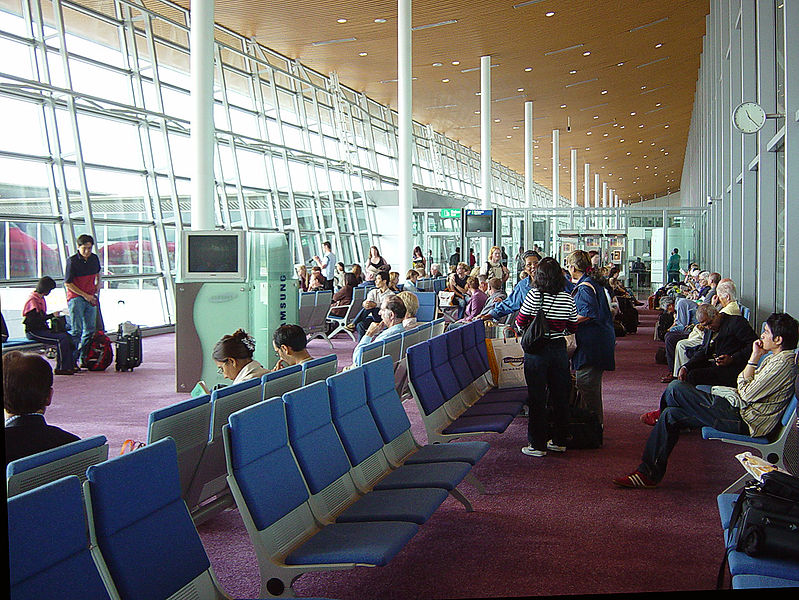
10 common travel problems and how to deal with them

Traveling can be an exhilarating experience, but it also comes with its own set of challenges. From language barriers to lost luggage and jet lag, common travel problems can make a trip more stressful than expected. Fortunately, there are plenty of ways to mitigate these issues and have a smooth journey. In this article, we’ll explore the 10 most common travel problems and how to deal with them effectively.
Travel Problems
- Lost Luggage: Losing luggage is a nightmare scenario for any traveler. To avoid this, always keep your essential items like passport, money and phone charger in your carry-on bag. Additionally, make sure to label your luggage with clear identification tags and place a copy of your itinerary inside.
- Flight Delays or Cancellations: Unfortunately, flight delays are inevitable at times. In case of this situation, stay calm and communicate with the airlines staff for updates on the status of the flight. While waiting for any next steps, it’s smart to charge all electronic devices fully.
- Jet Lag: Traveling through different time zones can leave you feeling exhausted from jet lag. To combat this problem, adjust your bedtime routine before traveling so that it aligns closer to the destination time zone to help reduce its impact once you arrive.
- Language Barriers: It can be tough when you don’t speak the local language while traveling abroad but learning basic phrases beforehand such as “hello,” “please” and “thank you” can go a long way in helping bridge communication gaps during travel.
- Getting Sick: Falling ill during travel is never ideal but packing some basic medicines like painkillers and stomach remedies can come in handy during an emergency situation.
Problem 1: Lost Luggage
Lost luggage is every traveler’s nightmare. It can disrupt your entire travel experience and put a damper on your mood. Sometimes, despite taking all the necessary precautions, luggage gets lost or delayed during transit. In such situations, it is important to stay calm and follow the right steps to retrieve it.
The first step is to report the missing luggage immediately at the airport’s baggage claim office. You will be required to fill out a form with details of your flight and personal information along with a description of your lost luggage. Keep a copy of this form for future reference. Airlines have tracking systems in place that allow them to locate misplaced baggage quickly.

While waiting for your lost luggage, pack essentials like clothes, toiletries and medication in your carry-on bag so that you have everything you need until you get reunited with your missing belongings. Be sure to keep copies of all documents related to your lost luggage such as boarding passes and baggage tags, as they may be needed when filing an insurance claim if necessary.
Problem 2: Airline Delays
Airline delays can be a frustrating experience for any traveler. Whether it’s due to weather conditions, mechanical issues, or other unforeseen circumstances, there’s little one can do to avoid them. However, there are some things you can do to make the experience less stressful.
Firstly, always check your flight status before leaving for the airport. This will give you an idea of whether your flight is delayed or on time. Secondly, if you know in advance that your flight is delayed, try to adjust your travel plans accordingly. For example, if you have a connecting flight at another airport and your first flight is delayed by several hours, it might be worth considering alternative options such as rebooking or rescheduling.
Lastly, if you find yourself stranded at the airport due to a delay that’s out of your control, make use of airport amenities such as lounges and restaurants. If possible get some work done while waiting so that even though things are not going according to plan productivity doesn’t suffer too much. Remember that airline delays are unfortunately part and parcel of air travel but with these tips in mind you will hopefully feel more equipped to manage them when they arise.
Problem 3: Language Barriers
Language barriers can be a major challenge for travelers, especially in countries where English is not widely spoken. Communication is key when traveling, whether it’s asking for directions or ordering food at a restaurant. One solution to this problem is to learn a few basic phrases in the local language before your trip. This can help you navigate more efficiently and make your interactions with locals smoother.
Another option is to use translation apps or devices that can help you communicate more effectively. These days, there are many apps available that allow you to translate text and even have conversations with people who speak different languages. Some popular options include Google Translate and iTranslate.
Finally, if you’re really struggling with language barriers, consider hiring a local guide or taking a group tour. This way, you’ll have someone who can help translate for you and provide valuable insights about the local culture and customs. Plus, it’s always nice to have someone else take care of logistics while you focus on enjoying your trip!
Problem 4: Currency Exchange
Currency exchange is a major concern for travelers, especially when visiting foreign countries. The fluctuating exchange rates and hidden fees can make it difficult to get the best value for your money. However, there are several ways to deal with this problem. First, do some research on the exchange rates of the country you’re visiting before you leave home. This will give you an idea of what to expect and help you plan your budget accordingly.
Secondly, avoid exchanging currency at airports or hotels as they often have high commission rates and unfavorable exchange rates. Instead, look for a local bank or currency exchange bureau that offers competitive rates and low fees.
Lastly, consider using a travel credit card that offers no foreign transaction fees and rewards for purchases made abroad. This way, you can save money on fees while earning points or cashback on your spending. By following these tips, you can ensure that you get the most out of your money while traveling abroad without worrying about currency exchange problems.
Problem 5: Unexpected Expenses
Unexpected expenses can throw a wrench in any travel plans . From lost luggage to missed flights, there are countless scenarios that can rack up additional costs. To mitigate these surprises, it’s important to budget for unexpected expenses beforehand and always have some extra cash on hand.
One way to avoid unexpected expenses is by researching your destination ahead of time and anticipating any potential costs. For example, if you’re traveling to a foreign country with a different currency, make sure you know the exchange rate and factor that into your budget. Additionally, look up common scams or tourist traps in the area so you can avoid them.
If you do end up facing unexpected expenses during your travels, don’t panic. Take stock of the situation and evaluate whether it’s a necessary expense or something that could be avoided in the future. If it’s an emergency expense such as medical care or transportation home, prioritize that cost over other activities or purchases during your trip. Remember that unexpected expenses are just part of travel and staying calm and flexible will help you manage them effectively.
Problem 6: Illness Abroad
Illness is one of the most common problems that travelers face when abroad. The unfamiliar environment, different climate, and exposure to new bacteria and viruses can take a toll on your health. It’s essential to take preventive measures before you travel to avoid getting sick while abroad.
One way to prevent illness is by getting vaccinated before you travel. Make sure you have all the necessary vaccinations for the country or region you plan to visit. Also, pack a first aid kit with basic medications such as painkillers, antihistamines, and antidiarrheal drugs in case you get sick.
If you do get sick while traveling, seek medical attention immediately. Don’t try to self-medicate or ignore your symptoms as they could worsen over time. If possible, choose a reputable clinic or hospital that caters specifically to tourists or expats as they are likely better equipped to handle foreign illnesses than local facilities. Additionally, be aware of any insurance coverage that may be available for medical expenses when traveling abroad.
Problem 7: Jet Lag
Jet lag can be a major issue for travelers, especially when moving across multiple time zones. Symptoms include exhaustion, insomnia, irritability, and digestive issues. However, there are several ways to manage jet lag effectively.
One strategy is to adjust your sleep schedule before departing on the trip. Gradually shifting your bedtime and wake-up time by an hour or two each day can help prepare your body for the new time zone. It’s also important to stay hydrated during the flight and avoid alcohol and caffeine, which can disrupt sleep patterns.
Upon arrival at your destination, try to get as much sunlight as possible during the day to signal your body that it’s daytime. Resist the urge to nap until it’s nighttime in the new location. Melatonin supplements may also help regulate sleep cycles if taken according to a doctor’s recommendations.
Overall, managing jet lag requires preparation and patience but can greatly improve the travel experience.
Problem 8: Poor Accommodations
Poor accommodations can be a massive travel problem that could ruin the entire experience. Whether it’s a musty smell or non-existent air conditioning, there are numerous issues that may arise in your hotel room. However, don’t fret because some tips would help you deal with this issue.
Firstly, when you get to your hotel room and it doesn’t meet your expectations, try speaking with the front desk agent immediately. They might be able to switch rooms or fix the issues for you. Also, make sure to read reviews before booking a hotel so that you have an idea of what to expect beforehand.
Secondly, consider alternative lodging options like Airbnb or hostels if traditional hotels aren’t meeting your expectations. These options offer different styles of accommodation at prices that suit every budget level.
In conclusion, having poor accommodations during travel can be incredibly frustrating and stressful. Still, by following some simple steps like reading reviews before booking and considering alternative lodging options like Airbnb and hostels alongside speaking with the front desk agent immediately can help avoid such situations entirely.
Problem 9: Overbooked Flights
Overbooked flights are a common problem that travelers face. Airlines overbook their flights to ensure that they fill every seat on the plane, but this can lead to chaos at the gate when too many passengers show up for their flight. If you find yourself in this situation, it is important to stay calm and remain polite when dealing with airline staff. They are just doing their job and trying to accommodate as many passengers as possible.
One way to avoid being bumped from your flight is to check-in online as soon as possible or arrive at the airport early. However, if you still get bumped from your flight, ask for compensation from the airline. You may be offered vouchers or cash for future travel.
If you have a tight schedule and cannot afford any delays, consider booking a non-stop flight instead of connecting flights or choosing an alternative airline with fewer incidents of overbooking. Overall, it is important to stay informed about your rights as a passenger and know how to handle situations like overbooked flights calmly and efficiently.
Problem 10: Unfamiliar Cultures
One of the most exciting aspects of traveling is experiencing new cultures. However, it can also be one of the biggest challenges. Unfamiliar customs and traditions can be overwhelming, leaving you feeling uncomfortable or even embarrassed. One way to ease into a new culture is to do your research before you arrive. Learn about the local customs and social norms so that you know what is expected of you.
Another helpful tip when navigating unfamiliar cultures is to observe the locals and follow their lead. Pay attention to how they dress, speak, and behave in different settings. Mimicking their behavior can help you blend in more seamlessly and show respect for their way of life.
Lastly, don’t be afraid to ask questions! Locals are often happy to share information about their culture with visitors. Strike up a conversation with a friendly face and express your interest in learning more about their way of life. You might just gain some valuable insights and make a meaningful connection along the way!
while travel can be a thrilling experience, it is not without its challenges. Whether it is lost luggage, flight delays or language barriers, knowing how to deal with common travel problems can make all the difference in ensuring a stress-free trip.
One of the most important things you can do before your trip is to research and plan ahead. Knowing what to expect in terms of weather conditions, local customs and transportation options can help prevent many travel mishaps. Additionally, investing in travel insurance can provide peace of mind and protection against unexpected issues like medical emergencies or canceled flights.
Lastly, remember that flexibility and a positive attitude go a long way when dealing with unexpected issues while traveling. Embrace the adventure and take advantage of opportunities for spontaneity – who knows what amazing experiences may come your way! By preparing ahead of time, staying open-minded and maintaining a sense of humor even during stressful situations, you’ll be able to handle any obstacle that comes your way on your travels.

Leave a Reply Cancel Reply
Popular posts.

You are using an outdated browser not supported by this software. Please upgrade your browser .
- Housing & Real Estate
- Living on a Budget
- Personal Finance
- Camping & Outdoors
- Destinations
- Vacation Rentals & Hotels
- All Cars & RVs
- Maintenance
- Makes & Models
- All Shopping
- Beauty & Fashion
- Home & Garden
- Kitchen & Groceries
- All Reviews
- All Food & Drink
- Beer, Wine, & Spirits
- Food Trends & Trivia
- Restaurants & Dining
- Taste Tests
- All Lifestyle
- Entertainment
- Health & Wellness
- Life After 50
- All Gift Ideas
- Gifts by Interest
- Gifts by Price
- Gifts for All
- Gifts for Her
- Gifts for Him
- Gifts for Kids
- In The News
- Privacy Policy
- Terms & Conditions
Copyright ® 2024 Cheapism
How to Avoid Travel Snafus in 2020

David-Prado/istockphoto

Travel Trouble
We all love traveling, but there's nothing like an unforeseen snafu to make you wish you could have a vacation from your vacation. Never fear, though. With a bit of preparation and this handy list, you'll ensure a vacation is a break from problems, not just a whole new set of problems in a brand-new place.
Related: How Travel Will Change in 2020 and Beyond

Plans Change and You Need to Change a Ticket
Before you book, familiarize yourself with an airline's change policies. Some will allow you to change a reservation within 24 hours of booking, some will charge a change fee , and others are bigger sticklers. It may be worth buying insurance for a trip, which will make it easier to change tickets in case of an emergency.

Your State Isn’t Compliant With New ID Regulations
According to new federal law, residents of states whose IDs don't meet minimum security regulations must have a RealID to board a commercial flight. Currently all but three states are compliant with those minimum security regulations, but it's worth checking the Department of Homeland Security website to see if you live in one of them. If not, head over to the local RMV or DMV to make sure you have the right ID before the changes are enforced in 2020. (Alternatively, you'll still be able to use a passport.)

Your Flights Are Canceled
Depending on the reason a flight is canceled and how long you're stranded, you may be entitled to some compensation from an airline. To avoid being stranded in the first place, though, try booking early morning flights so there's a full day ahead of flights you can be rebooked on. You can check on a flight's statistical average for cancellations at FlightStats .

You Arrive at the Airport With a Passport That Will Expire Soon
Before booking a trip, check your passport's expiration date — some countries, including Russia and China, require that a passport be valid for six months past the date of your return flight, and many European nations require passports be valid three months past your departure. Keep in mind that the renewal process can take up to six weeks, but if you're in New York City or a few other cities, it's possible to expedite the process.

You’re Bumped From a Flight
There's no way to guarantee you won't be bumped from a flight, but checking in early makes it less likely. Download the app for your airline beforehand, so if you are bumped, you can rebook a new flight speedily.

You Miss a Flight
Give yourself plenty of time to get through security, head to your gate, and stop for shopping or snacks if needed . Just bring a carry-on to save some time, and make sure to look into how big the airport is. The difference between a five-minute walk to a gate and a 15-minute walk could be the difference between making or missing a flight.

You Overpack and They Want You to Check Baggage
Check beforehand with your airline for maximum baggage sizes. Delta, JetBlue, and American are 45 linear inches (22 x 14 x 9) or 115 centimeters (56 x 36 x 23). At Southwest, the maximum size in inches is 24 x 16 x 10. The Carry On Guy has the details .

You Don’t Fit Into the Airplane Seat
If you're extra tall or overweight, you may not fit into the airplane seat . Some airlines may want you to buy a second seat, but there are sometimes ways around it. Check in online a bit early and grab a roomier exit row seat if you can. Or see what the refund policy is if you buy an extra seat and don't need it — some airlines will accommodate you. If you're not sure if you'll fit as you're boarding, talk to the flight attendant about options. They may allow you to trade seats with someone who has a bit more room.

You Arrive, Your Luggage Doesn’t
It's always best to pack at least a change of clothes in a carry-on , just to be safe. If luggage goes missing, contact the airline immediately. Some will offer vouchers for necessities.

Your Phone Dies Before You Arrive
If you're flying, check on charging stations at the airport and allow time to juice up before you go. Try to have devices charging a few hours before you leave. If you want to be extra careful, buy an external battery and keep it charged, so you don't have to find an outlet to keep your phone going.

You Arrive and Get the Flu
A major health incident could cost thousands of dollars to address. Traveler insurance is the way to go . Get a comprehensive plan, which will cover any potential scenario. The two basic kinds of plans are vacation plans — covering things such as cancellations — and travel medical insurance. Look into both to ensure any mishaps are covered.

You Arrive Starving and Don’t Know Where to Eat
There's no time for being hangry when traveling. Exploring with low blood sugar is a great way to ensure you'll be tired and miserable, so make sure to bring some healthy snacks . Try something filling and easy to transport, such as a low-sugar protein bar or some mixed nuts.

You Lose Your ID While Traveling
Make sure to make paper copies of the most important contents of your wallet, and ideally, two copies — one for you to bring (and keep separate from your wallet), and one to leave with a trusted friend at home. If your identification is misplaced, replacing it will be a much smoother process.

You Forget Something Important at Home
A couple weeks before a trip — before travel stress sets in — take an inventory of what you'll want to bring. Are you visiting family, and promised to return something you borrowed last time? Are you prone to sunburn and heading off to a beach ? Organize a list, print a copy, and post it somewhere central (and keep a copy on your phone as well). Set reminders on a phone for a couple days beforehand if there's something you're especially worried you'll forget.

You Travel Somewhere, and It’s Closed
This is basic: If you plan a trip around visiting somewhere special, it's worth making sure it won't be closed when you get there. Check websites for National Parks and other destinations to make sure you're not headed somewhere the one weekend it's closed for renovation.
Related: 20 Fascinating Places Where Tourists Aren't Welcome

You Visit During a Huge Weather Event
Beware booking trips to places such as the Florida Panhandle and other Southern locations without doing a bit of research into things such as hurricane season. The National Hurricane Center is a great place to start the research.

You Paid Too Much to Exchange Currency
Waiting to change dollars into different currencies at the airport will only eat away at a vacation budget. Look into fee-friendly banks , either near you or at your final destination.
Related: 25 Destinations Where Your Dollar Will Go Far

Your Phone Doesn’t Work
Call your provider beforehand to make sure your phone will be functional when traveling internationally, and not subject to sky-high roaming fees. Some providers have temporary international plans you can buy so a phone will work seamlessly anywhere, at not much additional cost.

Your Credit Card Doesn’t Work
Call your bank and sort out what you need to do to ensure a card will work on your trip, especially without foreign transaction fees. You can even do this online with some banks. Most cards have chips now; if yours doesn't, see if you can get one — some countries are fully converted to chips, and you don't want to be stuck without a working card.

Turmoil Strikes Your Destination During a Visit
The Smart Traveler Enrollment Program is a free service that allows U.S. citizens and nationals traveling and living abroad to register their trip with the nearest U.S. embassy or consulate. You'll get updates about safety conditions in your destination country and enable the embassy or family and friends to get in touch in an emergency.

Your Road Trip Starts With a Car Crash
With traffic deaths rising in the U.S., and considering the cost of travel health insurance for more elaborate trips, there's never an excuse to not wear a seatbelt. Make sure everyone is buckled up, no matter where you are.

Two Hours Into the Road Trip, the Car Stops
A couple days before you set off, check the oil and air pressure in your car's tires. In case something wonky happens, the Red Cross recommends packing an emergency preparedness kit and supplies (including water, nonperishable food, a flashlight, batteries, phone chargers, and a first aid kit). It also may be worth looking into a AAA membership for speedy and reliable roadside assistance.

Three Hours Into a Road Trip, the Kids Are Tired and Cranky
Plan ahead for road trip success not just by packing healthy snacks of fruits, vegetables, and nuts, but by having games on hand — digital and classic road-trip sightseeing ones — to keep everyone entertained. For longer drives, consider bringing a tablet or computer and download some movies ahead of time as well.

Three Hours Into a Road Trip, You’re Tired and Cranky
Plan some fun stops along the way , maybe a classic diner or bakery you'll be passing. A few chances to use the restroom, stretch your legs, and have some fun will work wonders for a road trip.


Travel Problems: Solutions That Can Save Your Trip
These days, travel problems aren’t just a possibility, they’re almost an expectation. Learn ways to prevent common issues and deal with any that do occur.
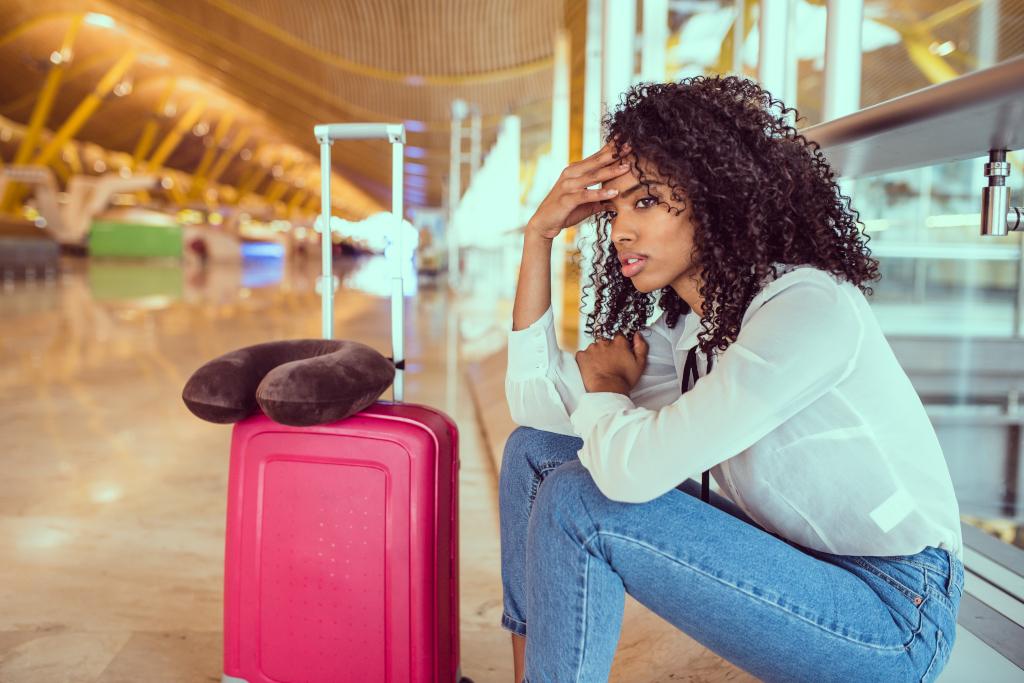
Travel affords fantastic benefits. It allows us to meet new people, experience new cultures, and grow as a person. However, travel does not come without difficulties. There are problems with language barriers, culture shock, and bad weather. Major travel problems aren’t just a possibility at this point; they are almost an expectation. Air travel, after the pandemic, is struggling to keep up with the surge in travelers in 2022, and more complex problems like pilot shortages, poor staffing, fuel problems, and a little bit of rustiness are adding fuel to the fire. So, how do you deal with these almost inevitable disruptions? Is there a way to salvage your trip?
In this guide, we will cover some of the most common travel problems as well as tried-and-true ways to overcome them. We’ll talk about post-pandemic madness, but we’ll also hit on travel concerns that pop up all the time. No matter what travel hardship you come upon, the most important challenge is to keep your head and quickly weigh the options. There are always options! They might not be what you originally intended. They might result in a completely different summer travel experience than you planned, but you know what? That doesn’t have to be devastating. It can actually be really exciting! Let’s dive in.
Plan a sightseeing scavenger hunt!
Looking for just the right tour to start off your trip? Consider an app-guided scavenger hunt from Let’s Roam . We have hundreds of adventures all over the world! Each unique experience includes trivia, photo challenges, and more. Engage in some friendly competition as you and your travel companions learn about landmarks and make new memories!
10 Tips On Being a Prepared Traveler
To be perfectly honest, you can prevent a lot of heartache just by doing things right from the get-go. Before we get to solutions for when problems occur, let’s chat a minute about some travel tips to keep them from happening in the first place!
1. Stay away from the masses.
Flying in and out of New York City, or London Heathrow is a bad idea right now. Large international airports do have the best prices, generally. However, they also have the most flights coming in and out. If one or two get delayed, guess what, they are affected. If you have the ability, book a flight from a smaller airport.
This same strategy goes for choosing your destination. Right now is not a good time to tour London, Greece, or Paris. Check out the Albanian Riviera instead!
2. Get good travel insurance.
Whether you invest in a great travel credit card or you buy extra travel insurance through a company like Safety Wing, make sure that your trip is covered. You may be eligible for lost baggage reimbursement, coverage for a hotel if your flight is delayed overnight, or even full reimbursement if your trip is canceled.
It is important to be familiar with your particular travel insurance company and how it works. Make sure you have read your policy. Print it out and carry it with you so that you have the customer service number and your rights handy. The same thing goes for the airline you are flying.
3. Don’t overbook.
Normally, it is a great practice to book things early, at least from a budget standpoint. That is not the case in today’s travel universe. The more you book in advance, the more you are going to have to fight to get back if you have a missed flight or other disruption.
4. Make sure your trip is refundable.
If you do choose to book ahead, make sure that everything you book is refundable up until the day of service. That means that you only book fully-refundable hotels, activities, etc. Do not book anything expensive for the first two days of your vacation. If your flights are delayed, and you just had free days planned anyway, then you didn’t miss much.
5. Pack light.
Seriously, do not check bags, unless you absolutely have to! For almost any trip in the world, you can manage with a carry-on and personal item. I realize this seems insane to some of you, but I promise it is possible. You can always purchase larger items when you get there. There is probably a Walmart or similar store. Don’t stock up at home on new clothes, shop when you arrive!
6. Pick a straight path.
Direct flights are the most expensive flights. However, they are also the least likely to have problems. If your direct flight is delayed a few hours, so what? You don’t miss your next flight because of it. You will still end up at your destination—just a little later than you had hoped for.
This may not even mean choosing a more expensive flight. It just might mean picking the correct airport. You may need to drive a couple of hours to a different one instead of choosing your nearest and usual. You may need to choose a vacation destination that is pretty close. Most Caribbean, Central American, and even Northern South American destinations can be reached with a non-stop flight from the US.
7. Check in early, and position yourself appropriately.
While I usually don’t recommend this, for travel in 2022, you need to be at the airport at least three hours early. Poor customer service, long waits to check bags, and frequent gate changes mean that there is a lot of opportunity for error. Give yourself time to adjust.
Once you have made it through TSA and to your gate, position yourself close to the flight attendant desk. The desk clerks are the fastest way to get a new flight if you are one of the first ones in line. Otherwise, there are better options we will discuss later.
8. Download all the apps.
The best travel apps aren’t just money savers—they can also help you keep your trip on track. If there is a smartphone app for your trip, download it. That includes the airport, airlines, hotels, etc. Turn on the notifications and set it to vibrate so you will feel when you get an alert. Some airlines will even put flight delays up hours in advance. This can save you from sitting in the airport for half your day when your early morning flight has been delayed until the afternoon.
9. Do your research!
When you leave for a trip, you should have some key information handy. Will your cell data work when you get there? If not, you should have the directions and map to your hotel downloaded. If you land in the morning, and you can’t check in until 3 pm, you should have a plan. Where are you going to get local money? Do they have a certain rideshare app that is prevalent? What are the major scams in the area? Know what to look for as soon as you step off the plane. You can’t research everything, but you can be prepared for 99%.
It is vastly important, that you have emergency services saved on your phone or written down (or both). You should have the address and phone number of the closest hospitals, the emergency service number, your roadside assistance, and the location of the US Embassy handy at all times.
10. Be flexible.
The key to surviving travel (and making the most of a bad situation) is keeping your mind open. If you travel enough, you will run into problems. It is inevitable. The kicker is…how do you react to them? Can you salvage the trip, or are you going to sit in it and be miserable?
Common Travel Problems and Last-Minute Solutions
Some travel-related problems are due to poor planning. Some are due to faulty systems and industry issues. Some are cultural. Some are situational, and some are just downright bad luck! We will cover them all in this section and give you a few tested solutions to make the most of a rotten situation.
Flight Issues
Beforehand: Make sure your flight is insured through credit card or travel insurance. Purchase refundable flights. Have a backup plan and a secondary destination, in case you need to change your entire trip.
In the moment: If you have to deal with a flight cancellation, don’t freak out! Keep your head and get to the customer service desk as soon as possible. If you are in a long line, then begin to contact customer service via social media or the phone number. Believe it or not, it is often quicker to use Twitter than wait for a person.
You will need to decide if you want to cancel your trip, get on the next available flight, or change your destination. Normally, if your flight is canceled, you will automatically be booked on the next available flight. However, you have the right to turn this down. This is where knowing those policies comes in handy. Don’t cancel a flight that is nonrefundable without knowing that you can get some reimbursement or a new flight.
For more information on this common travel problem, we’ve got expert advice on “ How to Make the Most of a Flight Delay “!
Language Barrier
One of the most frustrating things on the planet is to be stuck in a pickle and you can’t speak the local language. While a good chunk of the world speaks some English nowadays, it seems you’re always in a tiny village or rural area when you get in a jam, and there isn’t an English speaker in sight.
Beforehand: Before you travel, make sure to download the destination language on Google Translate on your phone. This way it will work even if you don’t have data service.
In the Moment: There are a few things you can do if you find yourself in an area where you can’t communicate. First, head for the most touristy thing you can find. Generally, hotels, tourist attractions, and popular restaurants are going to have the highest chance of finding someone who speaks your language.
Secondly, make friends! Talk to people on the bus. Look for ex-pats or digital nomad hangouts . I don’t know how many times our travel has been made 100x easier because one of our travel companions spoke a bit of the language. Friends are invaluable!
Don’t be afraid to ask for help. It is likely that a local speaks some English, and if you are brave enough to ask for help, you will find someone who is willing to help you. (Looking really pathetic and lost is also helpful)!
Lost Luggage
Beforehand: Make sure your bags are properly labeled with your name and home address. Have those policies printed out! Keep your claim tag information.
In the Moment: Consult the lost baggage service desk for your airline. It is usually located near baggage claim. You ask for the appropriate amount of money, per their policy, for delayed baggage.
If the airline refuses to give you a stipend, you can still rely on your travel credit card or insurance. Generally, this will be a reimbursement kind of thing, so stick to the budget in your policy and keep all your receipts.
Beforehand: Hydrate, hydrate, hydrate, both before and during your flight. You can also try to book flights that will have you arriving in the later afternoon or evening. Check out our tips for conquering jet lag !
In the Moment: Try not to nap when you land at your destination. You want to get on the local time as soon as possible. Try to get a good night’s sleep on the first night. This may involve a sound app on your phone, a sleeping mask, or adjusting the temperature. Do what you need to do to get a good night’s sleep.
Schedule Gaps
One of the most common frustrations is an early check-out time and a late check-in. You now find yourself with hours to waste, all your heavy bags, and nowhere to go.
What to do: The first solution is to contact your next hotel. They will likely allow you to check in early or store your bags in a safe luggage closet until check-in. If not, check into local locker storage. You can use Google or a specialized app like Bounce, Nannybag, or Stasher to find lockers near you.
When in doubt, find a Let’s Roam scavenger hunt nearby! That will kill 1.5-2 hours and you’ll have a great experience.
Bad Weather
Beforehand: Normal weather patterns should be part of your pre-trip research. You want to choose the season with the least amount of rain, no hurricanes, etc. However, the weather doesn’t always play along. If the weather is questionable, only book a night or two in your preferred hotel. You might need to relocate.
In the Moment: If you wait it out a day, and the weather still stinks, talk to your resort first. They will often be willing to relocate you to a sister hotel in another region. In some countries, just moving a couple of hours can put you in a completely different climate. In Costa Rica, for instance, the east coast has the opposite rainy season as the west coast, and they are only a couple of hours from each other.
If moving is not a possibility, then look into what you can do to have some fun indoors. We can help you with that! At Let’s Roam we have a series of amazing indoor activities for every kind of adventurer. Try one of our indoor scavenger hunts, a virtual murder mystery, or our home date nights. We know it isn’t a substitution for the vaca you planned, but it’s better than moping!
Consult the locals! The local people obviously live in this kind of weather. They know how to entertain themselves during monsoons, keep safe during major storms, and they will be more than willing to share their tips and tricks.
Tummy Troubles
Heard of “Delhi belly”, “the Haitian Sensation”, and “Montezuma’s Revenge”? Travel-related illness is all real, and they are brutal!
Beforehand: Ask your physician for the best antibiotic for food poisoning and traveler’s diarrhea for your destination. They will almost always write you a prescription to take with you. Make sure you research foods to stay away from and how to get clean water to your destination. Carry a filter water bottle.
In the Moment: If you get the dreaded sickness, hydration is key. You will have to force yourself to intake clean water, herbal teas, or whatever you can keep down. In many countries, the pharmacist has much more autonomy than in the United States. They always know the best medications for common ailments, and they can usually give you the correct medications without the need to see a doctor. If you are not better in a couple of days, you may need to visit a clinic or hospital for IV fluids.
Forgot Something
Beforehand: Carry a paper or digital copy of any important prescriptions.
In the Moment: If you have forgotten something you cannot do without. Consider having a family member overnight it by FedEx to your accommodation. If this isn’t possible, you can check with local facilities to get a replacement. Many eye doctors, pharmacists, etc. will fill your valid American prescription.
Getting Lost
Beforehand: Download your directions from Google Maps, or take a screenshot of the detailed directions. Take a screenshot of your hotel address.
In the Moment: Your first concern is to find safety. Drive, or walk, until you find a well-lit and populated area where you can think. Once you reach a store or gas station, ask a local for help. If you are in a rural area, call roadside assistance. When phone maps don’t work, you are best to just get a local taxi to take you safely to your destination.
Being Robbed
You’ve probably been saving for a while to cover your travel costs. Most people work very hard for the right to travel, so what happens if you get robbed? The most common assault is going to be a quick grab and run. Generally, they don’t want to hurt you, they just want your stuff. You are probably better off just to give it to them, and get to safety as soon as possible.
Beforehand: The key to not getting robbed is to pay attention and try not to look like a lost tourist. Do not flash your money or jewelry. Do not discuss money with strangers. Do not carry expensive electronics into crowded areas. Carry a moneybelt or slash-proof purse, and carry them crossbody. Men, put your wallet and documents in your front pockets. Do not keep all your cash, credit cards, and valuables in one place. Split them between your room safe, your travel partner, and a few places on your body. Be extra vigilant outside airports, train stations, and popular tourist attractions.
In the Moment: Get to safety quickly! Notify proper authorities immediately. If you still have your phone, contact your credit card companies, and your bank, and have your cards put on hold. If your phone has been stolen, get online and locate your phone (using the Find My Device App or something similar). This may help the police find the thief. You can also lock or erase your phone so that the thief does not have access to your accounts.
Getting Scammed
Beforehand: Every region has its favorite scam! Do some research on your destination and know what to look for before you travel. Be sure to read our advice on avoiding travel scams around the world !
In the moment: There really isn’t much you can do. If a prosecutable crime has been committed, you need to contact the police. If not, your primary goal is to get to safety. Do not engage with the person or persons, as causing a scene as a foreigner is usually not going to go in your favor.
Relationship Issues
If you travel long enough, you will eventually find travel buds, and they can be amazing! However, good things don’t last forever. It’s pretty common for travel relationships to go bad.
Beforehand: Keep it light. Don’t get into a long rental car or accommodation contract together. Make very clear expectations when you agree to travel with someone. It might sound formal and silly in the moment, but making sure everyone is on the same page about responsibilities, money, and expectations is really important.
In the Moment: When you feel the vibe changing, get out before it gets ugly. You can make up an excuse for why you need to leave, or just say that you need some time alone. Offer to pay your share of the expenses. Have a final drink together, and then part ways. If you don’t, it is going to blow up in your face, and you risk losing a friend totally, or worse.Exhausting Itinerary
This is a common one. If you are an American, you have limited vacation days, and you need to see it all! We get it.
Beforehand: Get a great guidebook! Rick Steves and Lonely Planet will both give you suggested itineraries and help you plan a schedule that is doable and enjoyable.
In the Moment: What do you already have tickets for? What are your top remaining must-sees? Go see these, and get rid of the rest. Ask a few locals (not in the tourist industry) which sites you should keep and which ones can go.
Lost Passport
Losing your travel documents is terrifying, but it happens to the best of us!
Beforehand: You should carry a photocopy of all your important documents with you. Use a secure documents app, like Last Pass . This will make the replacement of your documents much faster and easier!
In the Moment: Contact the local US embassy immediately. They will schedule an appointment to go over your case and get you new documents.
Culture Shock
If you’re heading to a destination for the first time, don’t be surprised if you feel awkward or uncomfortable at first. Culture shock is a real thing, and it can ruin your trip if you don’t know how to deal with it.
We’ve got tips to make you more culture conscious , and they would certainly be worth a read before you travel. Changing your mindset is a great way to ward off culture shock!
Beforehand: Research your destination culture and familiarize yourself with the stages of culture shock. This way you will know the symptoms and how to migrate through them.
In the Moment: If you find that you are judging your destination culture for the “weird” things they do, it’s time to respectfully ask some questions. The key to getting to a healthy place with a new culture is to understand why people do “weird” things, and why things are the way they are. Find a trusted local or traveler that is familiar with the culture. With a little background information, you will find that you can usually sympathize and move forward to a place of acceptance. Understanding and grace should always be your motive. Your way is not the only way or even the best way. They likely know something you don’t.
Terrible WiFi
If you are on a short trip, this isn’t such a big deal, but if you are traveling long-term, the lack of stable WiFi can make you insane. You do need to work, pay bills, and of course, binge Netflix, after all.
Beforehand: Carry a hotspot of your own, with a subscription option, like Skyroam . Always carry an unlocked phone with you.
In the Moment: Pop into the local phone carrier and grab a sim card with data. They usually have large amounts of data, free social media, and a few texting and call minutes for super cheap prices.
You’ve got this!
The best thing you can do to ensure that your trips are enjoyable is to do as much research and planning as you can from home. This will help you form realistic expectations, prepare for common scams, and have all the safety information you need.
You can’t plan for everything though, and problems will happen. The most important in-the-moment advice is to keep your head! If you freak out, you will not be able to make appropriate decisions. Don’t be afraid to ask for help, and remember that a bad vacation is usually salvageable if you are flexible!
In this guide, we have hit on a few of the common problems in travel, but a life of travel presents different problems than a short-term trip. For a good look at the reality of full-time travel, check out “ Essential Considerations for Long-term Travel .”
Frequently Asked Questions
The most common travel problems are lost passports, delayed or canceled flights, and lost baggage. Always carry photocopies of your documents and invest in travel insurance.
Long trips are rife with possible problems. The most common travel problems are relationship issues , canceled or delayed flights , bad Wifi connectivity , and culture shock .
Inclement weather is a common travel problem . If you find yourself in it, look for adventurous indoor activities , and consult locals on what they do when the weather is crummy!
Featured Products & Activities
- Skip to primary navigation
- Skip to main content
- Skip to primary sidebar
- Skip to footer
ChewsToExplore
See the World, Save a Dollar! | Budget Travel
budget travel , travel tips · March 9, 2023
TOP 14 TRAVEL PROBLEMS (AND HOW TO AVOID THEM AT ALL COSTS!)
Worried about what could potentially go wrong when traveling? I’m here to let you know some of the most common travel mistakes and how to steer clear of them effortlessly!
Disclosure: This post may contain affiliate links, which means we’ll receive a commission if you purchase through our links, at no extra cost to you. Please read full disclosure for more information.
You’ve got your dream vacation all planned out and you’re ready to go!
Or so you thought.
Sometimes you get so wrapped up in the excitement of your trip that you overlook a small (& sometimes really important) detail.
Travel mistakes can put a damper on an entire vacation.
We all make them – at least, I know I do! I’ve been to over 40 countries, and many mistakes have been made along the way.
You live and you learn. And I’m here to guide you on how to do better.
I’m outlining 14 common travel problems.
Keep reading to find out how to avoid them at all costs!
Some of the Biggest Travel Problems:
Forgotten or Lost Travel Documents
Solution: Always double-check your passport and visa to ensure they are not expired.
Poor Money Exchange Rates
Solution: Opt for a debit card with not ATM fees, securing better rates directly through the bank.
Incorrect Electrical Plugs
Solution: Solve this by bringing a universal power adapter .
Table of Contents
1. Bringing an Expiring Passport
This might be the biggest travel mishap you’ll want to avoid. Read it carefully.
You probably know better than to bring an expired passport.
But even if your passport is not expired yet , you may not be permitted into your travel destination .
Many places require you to have at least three to six months remaining on your passport.
Bringing an expiring passport is a huge travel problem!
This is exactly how our group trip to Ecuador turned into a baecation.
We planned to go to Ecuador as a group of four, but the rest of our group had passports that were expiring within the next five months.
Their flights were booked, bags were packed, and they made it all the way to the boarding gate. That’s when we all realized.
They were not permitted to board the plane to Ecuador with a passport that expired within six months.
Our passports weren’t expiring anytime soon, so we didn’t even think twice about checking the passport requirements.
Since they had a whole five months before their passports expired, they didn’t think there would be any problems either.
Afterall, they were able to book their flight with ease. There were no alerts telling them that their passport would not be considered valid.
They made it through the check-in desk and security at the airport without being alerted.
We all waited near our gate, excited to board our flight, and have an amazing trip to Ecuador!
All without a clue that half of us would not be going on this trip.

Don’t be the person who makes it all the way to the boarding gate with an expiring passport. You won’t be going anywhere.
How to avoid this travel problem : Before booking your travel plans, check the expiration date on your passport. Then check the passport requirements of the foreign country you are planning to travel to. Determine if there will be enough time remaining before your passport expires by the time of your trip.
RELATED ARTICLE: Pitfalls of Airbnb
2. Not Checking the Visa Requirements
Okay, this is probably just as big of a travel problem as bringing an expiring passport.
If you don’t have the appropriate visa for certain countries, you will not be going anywhere either. Take it from us!
This is a travel mistake that we made during our honeymoon.
But long story short, we did not properly apply for our Vietnam visas the first time we planned to visit the country.
Having a US passport comes with its privileges. It’s ranked the 7th most powerful passport in the world on the Henley Passport Index .
The 199 passports listed in the Henley Passport Index are ranked based on the number of destinations you can travel to without a prior visa.
If you’re an American citizen, you have access to 187 destinations without a prior visa.
But this shouldn’t be taken for granted.
You should always check the visa requirements of your destination.
Having both a valid passport and valid visa are important documents that you do not want to be without!
Most of the places we’ve traveled to have not required a visa. But a few notable places that did require a visa as a US citizen were as follows:
- Bali requires obtaining a visa on arrival for ~$35 USD at the Denpasar International airport.
- Galap á gos also requires a visa on arrival for ~$100 USD (cash only) at the Seymour Galapágos Ecological Airport.
- Egypt requires a visa on arrival at the Cairo International airport costing ~$25 USD.
- Zimbabwe requires a visa, but there are options. You can get a kaza univisa (rather than a sole Zimbabwe visa) online in advance for ~$50 USD which allows entry into Zambia and Botswana, as well.
- Cuba requires a visa that costs ~$100 USD. You can order a visa online and have it mailed to you, or you can do it at the airport right before boarding your flight to Cuba.
- Jordan requires a visa that you can get online and show a digital copy. If you purchase a Jordan pass, it includes the visa and attractions ( Petra , Wadi Rum, and other sites) all for ~$100 USD.
RELATED ARTICLE : Luxury and Budget-Friendly Options for Where to Stay in Bali

All information regarding obtaining your visa must be officially checked before finalizing your travel plans.
Prices may vary, and you should set aside time for approval and receipt of the visa.
How to avoid this travel problem : Before booking your trip, check what type of visa and travel documents you may need well in advance. Apply with plenty of time to gain approval.
RELATED ARTICLE: How To Travel More Spend Less: See the World and Save a Dollar
3. Not Getting Travel Insurance
I’ve worked as a pharmacist in the emergency department for years.
Nobody expects an emergency to happen, but they can and do. Even on vacation.
It’s all too common for travelers to incur unexpected emergencies and occurrences during their travels.
Medical expenses, medical evacuation, loss of luggage, change of plans, flight delays, canceled flights.
The list can go on and on.
You’ll want to be prepared to handle these scenarios with ease. Your best bet is to have travel insurance.
Personally, we choose SafetyWing for their user-friendly platform that is easy to navigate.
Their flexible policies are affordable and provide coverage in 185 countries.
Once you purchase travel insurance, you should also keep all documentation of your trip organized. This will make the process much simpler if you need to file any claims.
How to avoid this travel problem : If you have an upcoming trip, you can find more information about SafetyWing at this link . Read the fine print on the policies, and select the plan that is best for your travels. Have peace of mind and be prepared for the unexpected on your next trip with travel insurance.

4. Exchanging All Money at the Airport
This is a big no-no. The money exchange rate at the airport is usually much higher than it should be.
This goes for pretty much everywhere in the world.
You’re not getting the most bang for your buck at the airport.
But you likely need some of the local cash to get from the airport to your next spot. Exchange the bare minimum.
Find out ahead of time how much the public transportation will be from the airport into town, and exchange a little more than that amount.

Once you can find a local currency exchange or bank in the town, exchange your money there. There will be much better exchange rates. And your money will go further.
But you should certainly avoid exchanging every last cent you brought at the airport at all costs.
How to avoid this travel problem: Exchange only small amounts of money at the airport. Wait to exchange more money until you get to a local bank with the best rates.
We typically use our Charles Schwab debit card to withdraw cash directly from ATMs in foreign countries.
This card refunds all ATM fees.
RELATED ARTICLE: 20 Key Airport Tips for First Time Flyers
5. Carrying Money in Just One Place
This is an expensive mistake to make on vacation.
It’s risky to carry all of your money in only one place. If the money were to get lost or stolen, then it’s just all gone.
Foreigners are the main ones being targeted for pick-pocketing. If all the money you just exchanged is in that one spot, what can you do about it now?
Think ahead and keep your money in more than one place.
Some great places to keep your money:
- Anti-theft day bag
- Carry-on bag
- Zipped pockets

Pretty much, disperse your extra money in all different areas. Let’s say your money gets lost or was stolen.
It’s not the worst case scenario anymore because you’ve got back-up cash. And lots of it in different places.
How to avoid this travel problem: Spread out where you store your money so you never really run out. This includes spreading between you and your trusted travel partners.
6. Eating at Tourist Restaurants
You should avoid eating at restaurants that are nearby a major attraction.
In most cases this is a trap. The prices will be exorbitant, and the food won’t even taste good.
There are some exceptions. But generally speaking, avoid eating at the touristy restaurants.
The more authentic, local experience also comes with local prices.
And oftentimes, much better food. Some of the best restaurants are off the beaten path.
How to avoid this travel problem: Keep an open mind and support small, local businesses. Many times they taste better, and cost much less than the tourist-trap restaurants.
RELATED ARTICLE: Food in Aruba: 6 Must-Try Restaurants

7. Underestimating Jet Lag
It’s not a huge deal when you fly somewhere and the time difference is only one hour.
But what about when the time difference is drastic? 13 hours drastic.
That’s the time difference between New York and Singapore.
The flight is 18.5 hours long if you fly on a nonstop flight.
Between the long flight and being more than half a day ahead of time, your internal clock will really be out of whack.
You don’t want to overplan your first day with unrealistic expectations after this.
Ease into the time change. Prepare before your trip by adjusting your sleep habits.
Do the same thing before you leave. Re-adjust your sleep habits during your final days abroad and keep up that schedule on the long flight.
We actually opted for a layover in Germany before heading to Singapore to break up the flight time and different time zones.
How to avoid this travel problem: Account for the time change and adjust your sleep schedule to prevent extreme jet lag.
8. Bringing Credit Cards with Foreign Transaction Fees
While making purchases or cashing out at an ATM abroad, many international travelers are hit with foreign transaction fees.
International fees vary, but can be around 3% of your purchase. This adds up.
If you plan to use your credit cards overseas, make sure they have no foreign transaction fees! Think Chase Sapphire Preferred.
Some credit cards also come with rental car insurance coverage. You’ll need to read the fine print and confirm with the rental car company regarding this. But this can end up saving you money , as well.
There are so many travel credit card options. They come with so many benefits.
But understanding which card will benefit you the most can be overwhelming.
Want weekly travel tips, including travel credit card tips straight to your inbox? Join our newsletter!
How to avoid this travel problem: When abroad, only use credit cards with no foreign transaction fees.
9. Not Bringing a Universal Power Adapter
When traveling abroad you’re bound to come across differences. Even the power outlets may be different.
It’s a sorry mistake to need to charge your phone and not have a compatible plug.
This is a small detail that is commonly overlooked by travelers.
You should look into what kinds of power outlets exist in the country you are heading to.
For reference, we use Type A and Type B plugs in the United States.
If your destination uses different plug types, definitely pack your universal power adapter .
How to avoid this travel problem: Pack a universal power adapter!
10. Not Protecting Your Connection With a VPN
First off, what is a VPN ? It’s a “ virtual private network .” It protects your internet connection and privacy online.
If you join public wifi, your bank information and other sensitive information can get stolen.
Also, some websites that you may need to connect to are blocked abroad, one of the most inconvenient travel difficulties.
ExpressVPN is the #1 trusted leader in VPN . It comes with a fast setup. And you can have a private and secure connection in minutes.
You can protect your privacy, change your location, and unblock websites with ExpressVPN .
How to avoid this travel problem: Download ExpressVPN before your trip to protect your privacy online. Get three months for free by clicking here!

RELATED ARTICLE: Should You Use a VPN for Travel While Abroad?
11. Overpacking
When you overpack, you’re setting yourself up to be overcharged.
There’s checked bag fees, overweight bag fees, and oversized bag fees.
RELATED ARTICLE: 10 Easy Ways to Avoid Baggage Fees
It’s best to keep it simple by packing light in the perfect carry-on bag ( Baboon to the Moon Go Bag to be exact) and avoiding all of the above fees.
Using the right packing cubes can help mitigate these issues when traveling.
Does packing light still sound like an impossible task? But you don’t want to pay any of those baggage fees?
Let me introduce you to your saving grace: The Neck and Bag pillow from Cosy Collection .
You can pack more of your clothes in the NAB pillow and it doesn’t count as a carry-on or personal item.
It’s a free way to get more clothes through if you end up *needing* to pack more outfits.
RELATED ARTICLE: What to Pack: Essential Items Every Traveler Should Own
How to avoid this travel problem: Pack what you absolutely need in the perfect carry-on bag ! The NAB pillow will help make this possible✨
12. Packing the Wrong Clothes
If you go to a country without anticipating the climate or different cultures, you’ll run into some problems.
Packing the wrong clothes is a major travel mistake that is commonly made.
Sometimes you’ll get an amazingly cheap flight to a destination. But think about why the flight is so cheap.
It could be that you’re flying during the rainy season. This isn’t always the most ideal time of year to visit.
But it’s especially not ideal if you don’t at least pack a poncho.
If you’re in Peru traveling from Cusco to Sacred Valley , you’ll quickly realize how different the climate is in Cusco compared to Machu Picchu .
If you will be visiting temples or other religious sites on vacation, be mindful of their rules.
You don’t want to end up disrespecting anyone’s culture and local customs because you packed the wrong attire.

Many times you will need to skip out on showing shoulders, tummies, and legs.
Bring clothing that will allow you to properly and respectfully cover up.
Also, it can be easy to forget certain travel essentials , like packing a swimsuit when visiting Iceland .
That almost happened to us!
We were packing all of our wintery outfits, without remembering that we’d need a bathing suit for visiting some of the best hot springs in Iceland .
Thankfully it dawned on us at the last-minute while we were packing for our trip to pack swimsuits.
But that could’ve been awkward showing up to the world-famous Blue Lagoon Iceland without a swimsuit!
How to avoid this travel problem: Pack weather-appropriate clothes, and activity-appropriate clothes. If you plan to visit religious sites, pack layers to cover up with.
13. Not Getting an eSim
Using international roaming data comes with extra fees that quickly add up.
That phone bill is going to go crazy. You don’t want to make this mistake.
You can keep your phone on airplane mode for your entire trip to avoid this.
But what if you actually need to use your phone abroad?
Some phone companies offer an international cell phone plan, but coverage may not be available in all areas.
Many times we’d simply purchase a local SIM card abroad. They’re really affordable.
But we’d also have to find a pin to open the SIM slot and safely store our actual SIM card for the duration of our trip. That’s a bit risky.
Instead, you can use an eSim. This is a newer technology by Airalo .
The virtual sim card is stored in the phone’s memory.
Airalo is extremely convenient to use and even easier to set up.
It’s literally as easy as 1,2,3.
Airalo is the first-ever store for eSIMs , helping you avoid expensive roaming charges.
It offers access to over 200 eSIMs (digital SIM cards) worldwide, all at affordable prices.
How to avoid this travel problem: Download an eSim from Airalo . It’s available in over 200 countries and regions.
14. Not Booking the Flight Deal
When you’re searching for flights, and see a deal you might be hesitant to book it.
You might be thinking the price will go down even further, so you want to wait… And then the price goes up.
This is one of the most common mistakes that you should avoid.
Your flight search should go more like this:
- Have a price in mind that you do not want to go above.
- Search for cheap flights using one of the top 9 apps and websites included here .
- Once you find a flight for a price that is anywhere below the price you had in mind, book it directly through the airline!
- If the price drops further within 24 hours, you can get a full refund on any flight that departs or arrives in the US. Then book the lowest-priced flight ticket.
Top 9 Ways to Find Your Next Cheap Flight!
You should read the airline’s cancellation and change policies. Depending on the type of ticket you purchase, change fees may be waived even beyond the first 24 hours.
If you see a flight deal that looks good for your budget, don’t sleep on it. That’s a mistake.
The price could steadily increase. And even if the price drops lower, you can secure the cheaper flight and the best deal by abiding by the airline’s policies.
In some cases, you can get a price match if you find the same flight listed for a cheaper price on another website.
How to avoid this travel problem: When the price is right, book the cheap flight deal. How do you find these deals? And how do you know the price is right? Learn all the ways to be travel savvy in our upcoming course!
RELATED ARTICLE: Is Spirit Airlines Safe to Fly?
Final Thoughts on Problems When Traveling
These were 14 of some of the most common travel problems that travelers encounter.
I gave you some easy ways to avoid them at all costs, and I hope you use them!
You don’t want to find out you’re making one of these travel mistakes the hard way. You want to have the best travel experiences possible.
Was this article helpful? Share it with others!

About Olivia Taylor-Chew
Olivia is a budget travel blogger on a mission to "See the World, Save a Dollar!" She and her husband specialize in high-value, low-cost travel and will help you do the same, no matter your travel style or budget.
You’ll Also Love

Reader Interactions
March 11, 2023 at 2:07 pm
I completely agree about travel insurance! I understand why some people don’t feel the need for it, but better to be safe than sorry.
March 11, 2023 at 5:00 pm
Absolutely! Travel insurance is great to cover any unexpected misfortunes on your trip!
March 11, 2023 at 2:51 pm
I’ve made a few of these mistakes before. Nothing like changing a load of money at the airport and seeing a wayyy better rate when you reach your accommodation area!
March 11, 2023 at 5:09 pm
It happens to the best of us! It’s never good to feel like you got got. But, you live and you learn!
March 11, 2023 at 6:12 pm
These are spot on mistakes and we need to be careful not to have them. Thank you for such a wonderful reminder!
March 15, 2023 at 11:58 pm
Thanks for taking the time to read the article! It’s so important to be aware of common mistakes since they are so easy to mistake, especially if you don’t know/think about them.
- Budget Travel Blogs
- Budget Travel Shop
- Budget Travel Consult Service
Join the List
Enter your email address to receive updates from ChewsToExplore.
- Terms & Conditions
- Privacy Policy
Please go to the Instagram Feed settings page to create a feed.
Copyright © 2024 ChewsToExplore · Theme by 17th Avenue
How to Prevent the 34 Worst Travel Problems
Travel is magic.
It will make you more independent, resourceful, creative, and resilient. But travel also demands blood, sweat, and tears.
My guiding principle for deciding on topics to write about is “pick flowers, not weeds”. But I feel it’s also important to get a balanced perspective on a topic as important and transformational as travel.
I’m not trying to discourage you from getting on a plane – quite the opposite. I want you to return to your home after the trip with a broader perspective of the world, a more open mind, and a feeling of increased connectivity. Not limping, broke, and dejected.
A big part of travel is risk management – looking to the future to identify things that can go wrong, and taking appropriate action to avoid unnecessary suffering.
In saying that, it’s impossible to avoid every inconvenience or apparent negative experience. And in my life, I’ve sometimes found that what appeared negative at the time, became the fertilizer for significant personal growth later.
But if I can help make your road a little smoother, then I will.
I want you to have a wonderful travel experience because it will change your life, and others around you, for the better. So here are my first-hand tips for how to prevent the worst travel problems before they happen.

1. Get Travel Insurance
When tackling a large number of potential travel problems, it pays to start with the biggest ones first. Travel insurance can literally save your life. You hope you’ll never need it, but if that unfortunate day comes, you’ll be glad you’ve got it.
I have used Safety Wing for years, and heartily recommend it. It’s a travel medical insurance designed for long-term travellers, but anyone can apply for it – even if you’ve already started your trip, or your trip only lasts 1 week. There’s no need to tell Safety Wing about your itinerary in advance, which gives you more flexibility. Be sure to read the terms and get familiar with all inclusions and exclusions, so there are no surprises later. And keep your travel insurance info within easy reach in case you need to make a claim. Signing up online only takes a few minutes, and is super easy.
2. Ensure Your Passport is Ready
Most countries will require at least 6 months remaining on your passport (and at least 1 blank page – yes, that’s a real problem for frequent travellers!). It can take days or weeks to renew your passport, so sort that out at home and give yourself plenty of time. Don’t leave it to the last minute.
3. Know Visa Requirements
Speaking of passports, check the visa requirements for the countries you want to visit, and how long those visas are valid for. For example, if you’re only allowed to stay in Thailand for 30 days, don’t plan a 6-week holiday there. I know it sounds like common sense, but I’m still shocked at how many times I hear travellers getting into hot water because either they didn’t know or didn’t pay attention. Almost all immigration departments will count the day you enter and leave as a “whole” day, so don’t count the usual way.
Not sure how long you can stay? No worries! Here are a few handy references to get you started: Visahq.com , Passport Index , Borderless .

4. Research Everything
This is where the rubber hits the road. Become the all-knowing, all-powerful guru of (enter your desired city or country name/s here). Gather all the information you need, so you know what to expect from your destination, and can make a clear game plan (at the next step). It’s all on the Internet at your fingertips, and you know how to use Google, so there’s no need to pick up a physical travel guidebook anymore.
The devil’s in the details. Research topics like accommodation, transport, attractions, tours, and food. And then research some more. Some common topics to get you started:
- What area of the city will be most suitable for accommodation (closest to attractions, restaurants, public transport, etc)?
- What are the must-see attractions, as well as some off-the-beaten-path attractions? Which attractions require bookings ahead of time?
- What are the essential foods to try?
- What transport options are available, and fit best for the upcoming trip – buses, trains, car rental, rideshare, e-scooters, etc?
- Relevant seasonal information – is the location only open certain months each year, or are there seasonal storms or floods? What’s the weather like?
- What airlines fly to the destination, and when are the cheapest flights ?
My suggested benchmark for beginners is 1 day of research and planning for every 1 day of intense travelling. The time you invest now will pay dividends when you’re calmly and confidently strolling around a city, rather than rolling into a fetal position on the side of the road.

5. Plan Like You’ve Never Planned Before
It’s one thing to know what you want to do, it’s another thing to have a clear, easy-to-follow itinerary. This is where the majority of travel problems are nipped in the bud. Take all the information you’ve gathered at the previous point, and start painting a beautiful picture with it.
Make sure everything in your travel plan fits together, so there’s no ambiguity. For example, what’s the nearest metro station from your hotel, and how far is the walk? Get all the details for bus and train routes, what times they run. What attractions and restaurants are located close to each other? Group these together so you’re not wasting a single moment of your precious trip.
Remember to check the opening hours of restaurants ahead of time – ahem, I’m writing this sentence for myself more than anyone else.
Find out how to get from the airport to your hotel – train, shuttle bus, public bus, rental car or taxi? And how long will it take? Remember, if you arrive late at night, the available options might be fewer.
If I had a dollar for every time someone said I’m so lucky when my travel plans work out smoothly, then I’d retire. Listen up, people! It’s called “planning”! Luck has nothing to do with it.
Repeat after me… Josh says “Plan like a MOFO until you eliminate FOMO”.
How do you know when your plan is complete? You’ll be able to explain it to a stranger who’s never been to that city, and they’ll have all the information they need.
Inspiration : How to plan a trip to Europe (includes a free spreadsheet!).

6. Make a Plan B and C
Even the best plans can be thrown into chaos when something unexpected happens. So have sufficient backup plans in place. For example, I always research more restaurants and attractions than I’ll need, in case of an unexpected closure (like a certain Parisian vegan patisserie that closes for 1 month over summer each year, cough cough).
A tightly-packed travel plan will be at risk of the dreaded domino effect – one single delay can flow on to cause more delays in subsequent days (or weeks). For example, last year, an airport strike in Italy meant there was no way I could fly to London as scheduled, and future flights were all booked up (since it was summer), so I had to get creative, think on my feet, and find a new flight from Bari, 4 hours away by train. I lost one day in London from a 4-day stay, and had to squash my plan into 3 days. Fortunately, this wasn’t a nightmare because I built a little flexibility in my itinerary by prioritising specific attractions, tours, and food experiences as “A”, “B” or “C” priority. Instantly I could tell what items were less important and drop those from the plan without sacrificing the more important ones. No sweat.
7. Compare Reviews
Before you book a hotel, tour, or tourist discount card, look for blog posts that shed light on the experiences of other travellers. There is (sometimes) wisdom in the masses. Pay attention to common highlights and pain points, so you better know what to expect, and can decide if that’s the right fit for you.
8. Read Between The Lines
In contradiction to the previous point, sometimes it pays to ignore, or even better, decipher the real meaning behind reviews. Not all reviews are created equal, especially on user-generated content (UGC) sources like TripAdvisor, Booking.com, and Google Maps. It’s easy for inexperienced, uneducated individuals to write whatever they want, which results in conflicting viewpoints and widespread confusion. This is where you have to put a detective hat on, and learn when it’s the right time to listen to other people’s experiences or ignore the noise. For example, I read a Booking.com review about a hotel in Zakynthos, Greece, that complained about being too close to the nightlife hub with lots of noise, but that is exactly what I wanted (and I’m a heavy sleeper too), so I ignored that complaint.

9. Have A Clear Fixed Budget
Set a very firm budget and stick to it. You don’t want to run out of money in a foreign country. That means for all major trip elements (flights, buses/trains, car rental, accommodation, food, tours, attractions, entertainment), decide how much to spend, either overall or per day/week. And then simply don’t go over that limit, regardless of how tempting it might be. If you go over 1 element, make up for it by saving in another.
Regardless of how much money you save up, ensure you have enough set aside for flights back home (if you didn’t book them in advance). And if you’re planning to travel for an extended period, you really need at least 3 months’ worth of expenses saved in advance, so there’s a buffer in case of a sudden change in income (eg. you lose your remote job or the stock market takes a dive).
I am bamboozled by travellers who run out of money because of a lack of planning.
If you need help making a budget, check out my step-by-step process (and a free spreadsheet) in this article .

10. Pack With a List
Forgetting something back home after you’ve already landed in a new destination creates a murky sinking feeling in your gut. So, visualise everything you will need on your trip weeks before departure, and write it all down. I find that throughout the course of the day, I’ll think of something new and keep adding to the list. That way, the night before departure, when the empty suitcase comes out, I don’t have to wrack my brain. If you’re travelling with a friend or partner, share the list so you’re on the same page and avoid doubling up.
11. Pack Most Important Items in Carry-on
Here’s an important question… if the airline loses your luggage, can you live without it for a few days? All your important documents, medication, valuables, and electronics should be packed in your carry-on bag, not a checked-in suitcase.
12. Weigh Your Luggage
Aim to be at least 0.5kgs below your allowance, as most airports skew the scales in their favour. Nasty but true. You don’t want to waste your hard-earned money on excess baggage fees when you could use it for cocktails by the beach. If your carry-on or checked luggage might be overweight, keep a mental plan for ways to reduce the load. Recently, I got stopped by a young, overzealous ground crew at Kuala Lumpur International Airport, and rather than paying extra fees, I took out my jacket and loaded the pockets with the heaviest items in my bag. Then relished the deflated expression on their face when they realised my bag was now within the limit, and I won the game. I walked away, around the corner, opened my carry-on bag, and emptied my pockets back into it. One point to Josh.
Bonus tip: Leave at least 1kg of spare weight in your suitcase if you’re planning to buy souvenirs.
Another bonus tip: If you don’t have a dedicated luggage hand scale (which are pretty cheap on Amazon), just use a bathroom scale and stand on it with and without your bag. Do the math, and you’ve got the luggage weight. Presto!
13. Maintain Your Inventory
Take photos of everything in your suitcase, especially the more valuable items. And then create a spreadsheet that includes the item name, date purchased, value, and serial number (for electronics). This means if any item gets stolen or damaged you’ll have the required info handy to make a quick insurance claim. I also kept a folder of photos for receipts of all expensive items – preferably in a cloud storage service like Dropbox or Google Drive.
14. Check and Re-Check Your Flights
Check your flight status a couple of days in advance, and before you leave for the airport. This ensures you’re aware of any cancellations or delays. Allow sufficient time for transport to the airport – especially when relying on a taxi. And if travelling by road, keep in mind traffic jams during peak hours. I prefer to leave a decent buffer of time so I’m not cutting things too fine.
Tip: Search Google for “flight status (your flight number)” and many times it will give you the live status. However, this isn’t available for every airline.

15. Understand Airline Policies
Airline policies vary greatly, and compensation programs also vary between countries/regions. It’s important to know the small print before you get into a pickle, so you can stand your ground and demand your rights. How many changes are you allowed (if any), and what is the fee if you need to change your flight (or is that even possible)? Some airlines now include 1 free change if you test positive for COVID-19.
I was in a situation last year when an airline cancelled my flight, so I had to re-book an entirely new route, and I clarified with them that this wouldn’t use my “1 free change”, to which they agreed. The day before departure, I had a positive COVID test and had to reschedule that same flight. They claimed I used up my “1 free change”, but I stood my ground and had to stay on the phone for hours (even while I was sick) but managed to eventually speak to someone who recognised the airline’s mistake and allowed me to re-book for free.
16. Keep Important Contact Details Handy
Write down phone numbers for travel insurance, bank fraud hotline, local emergency services, tourist police, your hotel, and your embassy. In the unlikely event that you’ll urgently need these, you’ll be glad that they are within easy reach so you’re not scrambling around like a mad chicken. Keep a digital copy in Google Keep and printed copies in multiple bags.
17. Be Realistic With Your Time
It will usually take longer than you anticipate to get between locations via public transport, or through a particular tourist attraction. Give yourself a little breathing room – you’re meant to enjoy a vacation! Allow sufficient time to recover from jetlag for west-east flights longer than 4 hours. And on longer trips (over 2 weeks), give yourself some “down days” to rest your body and mind.
18. Be Realistic With Your Fitness
Do you have the stamina to walk 25,000 steps per day for a week straight with no rest days? If so, great. If not, don’t ruin your vacation. During the planning stage, if you recognise you’ll be doing a lot more walking than you’re used to, start a daily fitness routine today.

19. Be Mindful of Security Threats
Bag snatching or pickpocketing is more common in larger cities. Don’t flash your cash, and don’t look too glam. Be aware of your surroundings and stay alert. Don’t share your hotel details (especially room number) with strangers – even taxi drivers. On my most recent trip to Europe, I wore shorts with theft-resistant zippered pockets .
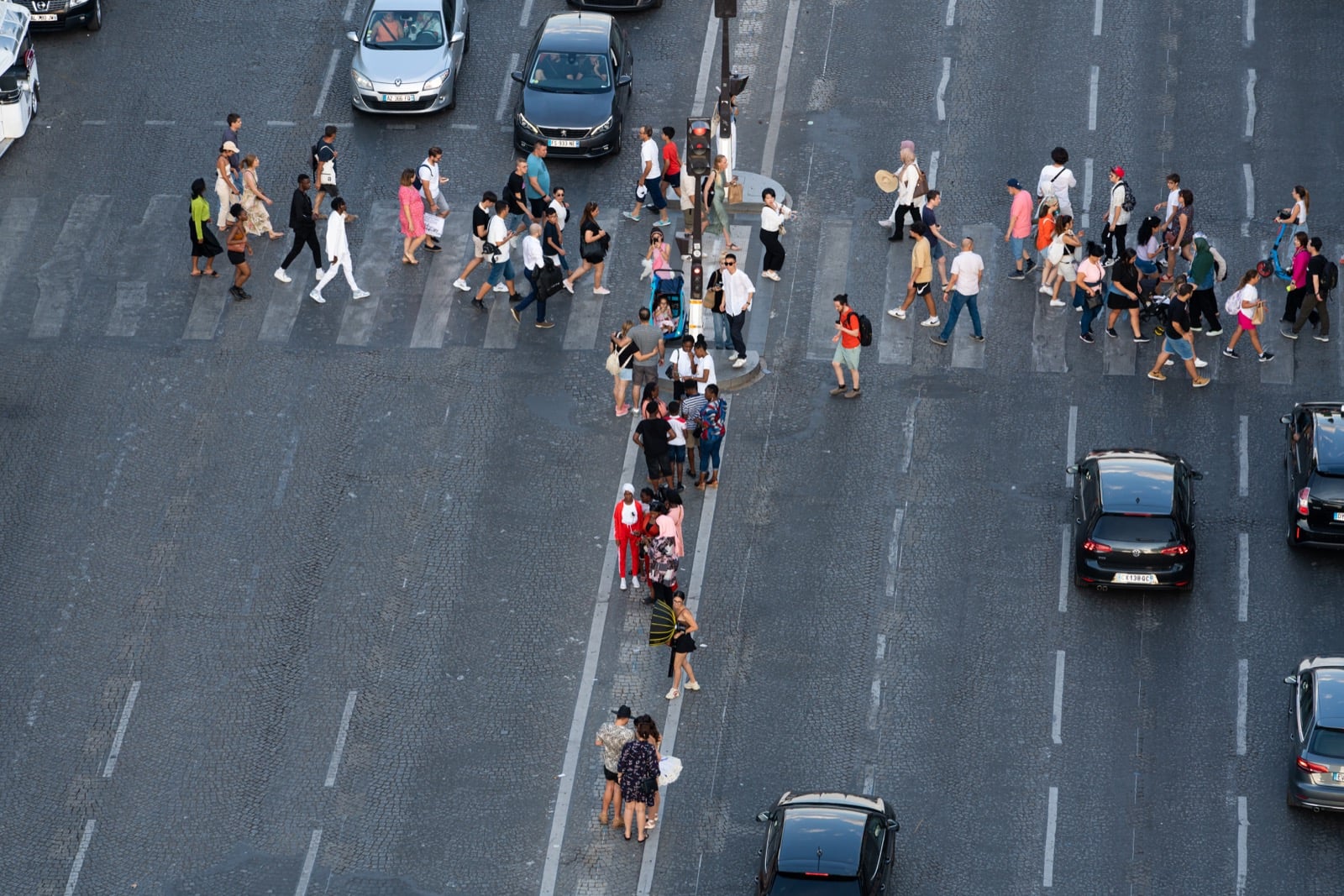
20. Wear Sunscreen
This isn’t just a line from a catchy 1990’s Baz Luhrmann song. If you’re heading to a summer destination (or snow as well), slap some high-SPF sunscreen every day and re-apply every 2-3 hours. It’s not fun having a sore everything, preventing you from enjoying your much-needed vacation.

21. Consider Foodborne Illness Risks
I’m a fan of trying local foods at every new destination. It’s part of the cultural identity, after all. Some destinations are riskier than others. But when in doubt, I highly recommend Travelan , a little tablet that prevents most cases of travellers’ diarrhoea. It’s not fun ruining a holiday by puking your guts out for days, or even ending up in a foreign hospital.
22. Bring Backup Food
Bring a couple of easily portable meals (such as instant noodles) for those moments when you just don’t have the energy to leave the hotel room, and working out the most popular food delivery app in a foreign language does not inspire thoughts of joy. This happened to me in southern Thailand, and I had to ask the hotel front desk staff for assistance in ordering through a local app written entirely in Thai.
23. Build a First Aid Kit
Bring (or buy) inspect repellent if you’re travelling to a location with mosquitos. Also, pack a basic first aid kit with a bandage, adhesive bandages, antiseptic cream/gel, paracetamol, allergy medication, and anti-nausea meds. I take this wherever I go, and a few times it saved the day.
24. Break Down Language Barriers
It’s easy to get frustrated when you’re in a new country and can’t speak or read the language. I’ve experienced this more times than I can count. But now I download offline languages for the Google Translate app ( iOS , Android ). This helped me in Turkey recently when the landlord couldn’t speak a word of English, so I turned on “ conversation mode ”… it saved the day.
25. Get Your Debit/Credit Card Ready
Ensure your preferred card is activated for offline payments and overseas transactions. Depending on your bank, this may be controlled via the online banking mobile app or you may need to call them. Some banks also prefer to know in advance if you’re travelling overseas.
I got stuck once at a car rental agency when my bank at the time blocked my credit card because they thought the transaction was suspicious. My internet connection was too slow to make a VoIP call and get the card unblocked. A nightmare!
The Wise debit card does a great job of cross-border transactions with low conversion fees. Highly recommended.
26. Use Virtual Debit Cards for Risky Transactions
Some destinations present a higher risk of fraud than others. One solution is to make contactless payments in-person with Google Pay , Apple Pay, or Samsung Pay . These services generate a unique card number for every transaction, whenever you tap your NFC-enabled phone on a payment terminal, lowering your risk of card skimming. In addition, online payments can be made using a “virtual” card if your bank supports it – Wise does . The less often you use your physical bank card, the better.
Losing access to a bank card mid-trip can be a disaster. So have at least 1 backup card available.
27. Bring Enough Cash
Have enough cash on hand for the length of time you’ll spend in a destination. It’s easy to go cash-free in places like London, but many other parts of the world still work on the concept that cash is king. You don’t want to be stuck somewhere without enough cash to get you out or put a roof above your head. This tip goes hand-in-hand with the previous 2 points about managing risks related to your payment cards. Keep your cash in safe places, and never unattended. If your hotel has a safety deposit box, then use it. And only bring enough cash with you for each day when sightseeing – reducing the potential damage from pickpocketing.
28. Keep Your Phone Backed Up
Use cloud-based apps for your most important data and photos, like Dropbox or Google Drive. So, if your phone is damaged or stolen, your most important data is not completely lost.
29. Take a Powerbank Wherever You Go
I rely heavily on my smartphone for everything. A flat phone battery can create a lot of frustration and throw your travel plans out the window. Make a habit of charging your powerbank every evening before going to sleep.
30. Don’t Use Unsecured Public WiFi
It’s simply not safe. Hackers prey on unsuspecting tourists who are desperately drawn to public WiFi networks like moths to a flame. It’s better to use an international eSIM or VPN service , or both. I learned this the hard way, when I connected to a public WiFi network in a hospital, and within minutes, hackers got into my Instagram account, and poof… 160,000+ followers disappeared. Ouch!
Tip: I recommend aloSIM for great value travel-friendly prepaid eSIM plans.

31. Compare Accommodation Pictures to Real Life
When using Booking.com, Agoda, Flatio and similar platforms, keep your booking details handy (make screenshots for offline use, if needed).
I had an issue in Turkey where the landlord owned multiple apartments in the same building and gave me one that didn’t look anything like the pictures on Booking.com. I had to stand my ground and argue with them (through Google Translate), and finally, they agreed to give me the apartment I was expecting.
32. Dress Appropriately
Clothing customs might be different in your destination country than at home, so research these before packing your suitcase. Don’t draw unwanted attention when in public. Avoid wearing flashy jewellery or expensive designer clothes. Otherwise, you’ll be a highly visible beacon for thieves.
And ensure you pack appropriate clothing for the weather. I took a road trip in Australia to an area that experienced 70km/hr winds off the Southern Ocean. Let’s just say a tank top didn’t cut it. Brrrrrr!
33. Understand Cultural Norms
These can range greatly depending on your destination. And a little background research can avoid all sorts of dramas. For example, it’s common in Europe to charge for toilets. So don’t walk into a Parisian café and use their toilet without asking or purchasing anything, unless you enjoy getting yelled at in French.

34. Avoid Relationship Stress and Breakdown
Travel can cause stress and frustration. There’s a popular saying “You don’t really know someone until you travel with them”. Take your friend or travel partner out of their comfort zone and familiar surroundings, and watch how they adapt and adjust (or don’t). Lack of communication is central to most relationship breakdowns, so don’t be afraid to be brutally honest with your friend or partner. Be flexible with your plans, but don’t compromise your happiness.
The Bottom Line
Travel is all about the inner journey that will bring forth the best in you. It will create new dizzying highs, and hopefully, by following my tips, you can dodge the lowest lows.
I’ve discovered transformative travel is made of 3 entwined components – preparation , positivity , and flexibility .
My approach to organising travel is to “plan for the worst, but expect the best”. Once you’ve covered all the bases as well as you can, dedicate yourself to choosing an optimistic perspective. A positive mindset tends to attract more positive experiences and people – it’s the nature of the universe.
And after you’ve followed all of the above, just go with the flow and be flexible . There are some things that will happen, no matter how hard you try to avoid them. And the more you put energy into avoiding, the more inevitable it becomes. This might seem contradictory to my advice on optimism, but that’s how life goes.
So, take a deep, slow breath and find calm and peace in the easy times, as well as the hard times. Remember that steel is forged in fire, as is your character. So, any challenge you face and learn from will only make you stronger and wiser. When you master the ability to cultivate joy in every circumstance, then you’ll become invincible.
Oh, and remember… don’t take yourself too seriously.
Life is short. Enjoy it.
If you enjoyed this article, you might also like...
- How to Plan a Trip to Europe in 2024
- 74 Best Suitcase Packing Tips - Master Your Luggage Like A Travel Ninja
- How to Choose an International eSIM for Travel
- The Ultimate Guide To Find Cheap One Way Flights
More posts from Travel Tips

Best Free eSIM Plan for Travel: Try Before You Buy
I’m always looking for travel hacks to save money and get more bang for my buck. I recently came across an established international eSIM provider that has just started offering a…

11 Best Destinations in Southeast Asia for Digital Nomads
Ah, the digital nomad life! Working from exotic locales, sipping coconuts by day and coding away by night. If you're itching to embark on a Southeast Asian adventure while keeping…

Road Trip Comparison: RV Rental vs Tent Camping vs Hotels
I often get asked… should I rent an RV? Let me start off by saying that there’s no one-size-fits-all solution for every traveller. A lot of it depends on personal preference,…

Which Carriers Support eSIM in Germany?
Germany is an exciting destination for any traveller. From bustling Berlin to the quaint charms of Cologne, Germany offers something for everyone. Firstly, you'll need a mobile…

What is the Best eSIM for New York with Unlimited Data
For visitors, New York generously offers a dizzying range of activities. But the first thing you'll need is a prepaid data plan for your smartphone. I've compared dozens of options…

How to Find Cheap Flights with eDreams
Discover the steps I use to find cheap flights on eDreams and the 5 reasons why I choose this online travel agency.

Is eDreams Legit & Reliable?
Have you heard of eDreams, but are not quite sure if it's safe to use? Before you spend your hard-earned money with them, let me take you through the story of eDreams and the…

How To Get a UK eSIM for Travellers
Are you planning a trip to the United Kingdom? If you are, congrats! The Land of the Rose Isle has so much to offer its visitors. But before you start packing your bags, there's…

How to Choose an Australia eSIM for Travel
If you’re visiting Australia from Asia, Europe, or North America, then chances are you'll want to use your fancy new smartphone on vacation. But what if you don’t have a local SIM…
Reader Comments...
Thanks for sharing this blog, Keep it up!
Such a great article, thank you for sharing this blog.
Write Your Comment
Please DO NOT include links, URLs or HTML in your comments - they will be automated deleted and you will waste your time.
RECOMMENDED: Check out this power bank that can quickly charge your phone AND laptop. An essential travel gadget for 2024.
My name is Josh and I'm an Aussie who has been travelling the world non-stop for 12 years , and explored 70+ countries so far. I'll help make your next vacation awesome with first-hand guides and essential travel tips.
(click my smiling face to find out more)

Latest Post

17 Things To Do In Bali For Couples
Bali is a haven for couples of all ages. I recently returned to Bali for my 20th visit, and I was inspired to explore parts of the island I had not seen before, as well as revisit…
Travel Hacks

SafetyWing Nomad Insurance 2.0 Claim Process Revamped
SafetyWing has long been a trusted insurance provider for digital nomads and frequent travellers. It has a well-deserved reputation for low fees, solid coverage, and ease of…

The Best Solutions to 9 Common Travel Problems
- November 27, 2022
- Travel Smart , Travel tips , World of Travel

{{This post might contain affiliate links. If you use any of these links to buy a product, I will earn a small commission at no additional cost to you}}. Read my full disclosure for more details.
Traveling the world is the most memorable and exciting activity where we can try new things, gain new experiences and get new emotions. However, despite all the positive sides of travel, there are always some common travel problems on the way which can destroy our trip entirely if we do not take action to avoid them once they happen.
If we can be better prepared for traveling, we can make it much easier and less stressful, and many travel problems can be avoided or minimized. That’s why I’ve created this list of the biggest and most common travel problems most travelers face and their best solutions.
The Best Solutions to 9 Common and Biggest Travel Problems
Top 9 common travel problems , 1. getting sick.
We can get sick everywhere and anytime, unfortunately, but it is much worse if it happens when we travel. Therefore, to evade these travel problems related to sickness or minimize the chances, at least follow these SIMPLE TIPS:
- To avoid getting food poisoning on the plane , do not eat fish or food you never tried before (if you have a sensitive stomach, that might be a big problem).
- You are getting altitude sickness . Drinking plenty of water and taking particular medication with you if you plan to climb high and get used to the environment first is very helpful. You shouldn’t have any shortness of breath, nausea, or tiredness. In case you got it, stop climbing and get back to the lower level until you feel better . In rare cases, you will have to look for medical help.
- Wash your hands ALL THE TIME . Especially in some rural places, there can be some sanitarian issues.
- If you have problems with veins , wear compression stockings and walk on the plane during your flight to get some exercise.
- If you go to hot and tropical places , ensure you have the most effective insect repellent. In addition, wear a hat, covered clothes (when possible), sunglasses, and sunscreen to avoid sunburn.
- To avoid substantial medical bills , always get travel insurance . There are many companies and plans, and you can get as cheap as $5 for your trip. Most of the affordable plans cover major cases and can be very useful if there is an emergency.
- To avoid or minimize jet lag when flying internationally, try to fly in the evening from your destination and do not sleep during the day once you will arrive.
2. Cultural Shock
Some places are so different from the places we get used to. It can be their traditions, culture, people habits, or food.
SOLUTION: To avoid cultural shock, do all the research about the new country upfront. I constantly research the rules of the country or other vital information to avoid being fined or getting into an embarrassing situation. That helps :).
3. Getting Lost
Does that sound familiar? :). Have you ever heard about this common travel problem, or did it happen to you? It can happen to everybody in a foreign place, even if you have never gotten lost. It can happen for many reasons: not working internet, google maps, or little people’s ability to speak English.
SOLUTION : To avoid this travel problem, ensure you have a screenshot with all the necessary info/directions/addresses on your phone and a portable mobile charger.
Uber is not always available at the destination you are going to, which means you won’t be able to use the app all the time. Research what sharing app they are using so you can download it earlier.
And, of course, try not to panic . I understand that when you are lost, it is impossible (I’ve been there too), but people are usually beneficial. Even if you have problems finding directions or something else, they will try to help you if you ask.
4. Lost or Delayed Baggage
At first, it sounds awful if your baggage doesn’t arrive at your destination once you land. However, it can be an advantage for you at the same time :).
Once you know that your baggage is delayed (it usually happens between international flights if your layover between destinations was too short) or lost, stay calm and proceed to the agent’s desk with your concern.
SOLUTION : For compensation, you can file a claim with an airline agency, insurance, or credit card company (if you bought tickets through them). Quite free money :).
It happened to me once that my baggage was delayed for a day or two, and I got some compensation from the airline for the inconvenience it caused me.

BONUS TIPS:
- To protect your baggage from scratches or any other damage, wrap it up yourself with plastic wrap at home to save money instead of doing it at the airport ( Important: make sure you check with the airline/airport first if they accept self-wrapping. Some places do not).
- Put the address/name tag on your luggage. So in the order it gets lost, it has your information.
- Please do not put the primary necessities in your luggage; instead, have them in your carry-on. So you have them with you when needed.
5. Missing Your Flight
Missing a flight is the biggest annoying travel problem, which can happen to anybody and cause a lot of trouble.
SOLUTION: To avoid such a situation, ensure you arrive at the airport early. I usually arrive at the airport 2 hours ahead of my domestic flight and 2.5-3 hours if I fly internationally. Better early than late, right ?!.
If you get into a situation where you miss your flight, stay calm. If it were your fault, the airline would be less likely to provide you with a new flight for free, but sometimes they can offer you a standby option for the next flight. Airlines typically have this policy if you arrive no more than two hours late. Don’t hesitate to talk to the agent to know your best options.
You might also be interested in learning more about common airport problems and solutions !
6. Overbooked Flight
Sometimes the flight can be overbooked, and airport authorities might tell you you have no seat. Did it ever happen to you? That is not the best news we want to hear, right? They do it because they need to sell all the tickets, and some people do not show up occasionally; they sell more tickets than they are supposed to.
That doesn’t sound very good, but think about it from a different perspective.
SOLUTION : Your best option is to wait until the seats get open, or if you are not in a hurry and can take another flight, do it, as the airline is going to offer you compensation for that plus a free ticket for the next flight if you volunteer to give up your current seat. It doesn’t sound bad at all!
To avoid this situation, always check in as early as possible (it’s not a 100% guarantee, but it can make a difference).
7. You Forgot to Buy a Travel Adapter
I got into a situation when I arrived in Singapore and couldn’t charge my phone because the adapter I had was unsuitable for its country.
SOLUTION: To make sure you are not making the same mistake, do your research upfront about what kind of voltage is there and what adapter you need to avoid such an issue and buy it, so you will have the right one once you arrive. If you don’t have it, ask your accommodation place if they offer to rent or buy it. Some places do.
I found this International adapters guide helpful article you might want to check out.
8. Bad Accommodation
I am sure you triple-checked your hotel online?! Everything was good, but the reality didn’t meet your expectations once you arrived. For example, your room and shower were dirty, there was a bad smell, or you didn’t get the view you requested.
Did this happen to you?
Once I wasn’t happy with my room and asked for an upgrade because of the poor room conditions. It worked fine for me.
SOLUTION: If you have booked your accommodation with a third party, contact them first to resolve this travel problem. If it was Airbnb, they could assist you with finding a new place or getting a refund. If you booked a hostel or hotel yourself and don’t like your room for any reason, do not be afraid to ask the staff of the hotel/hostel for an upgrade. KNOW YOUR RIGHTS AND SPEAK UP!
9. Paying For a Carry-on
Some airlines have strict rules about what you can bring as a carry-on. A good example is Frontier airlines. They only allow a small purse inside the plane, which in most cases is not enough and can cost a lot of money to pay after.
12 TIPS ON HOW TO TRAVEL CHEAP

SOLUTION: Always check on the airline website the approved dimensions for a carry-on bag to bring on board to avoid extra charges. Pack as lightly as possible to make sure you can fit all you need in one bag.
Final Thoughts
Traveling nowadays has become so much easier than before. The reason is that we have so many resources available now and know a lot of tricks from the travel experts which help us on our travel journey.
Unfortunately, traveling has never been stress-free and without common annoying travel problems , but knowing the best solutions for resolving the biggest travel problems makes it more enjoyable and less stressful. I’ve been using these tips myself, and since then, my travel has been 99% better in difficult situations. I hope my article about the 9 most common travel problems and how to avoid them will help you on your journey.
Happy travel!
Save this post for later
You might also be interested in THE ULTIMATE TRAVEL PACKING GUIDE
Popular Posts
5 Days St. Thomas US Virgin Islands Full Itinerary (Updated)
- August 6, 2024
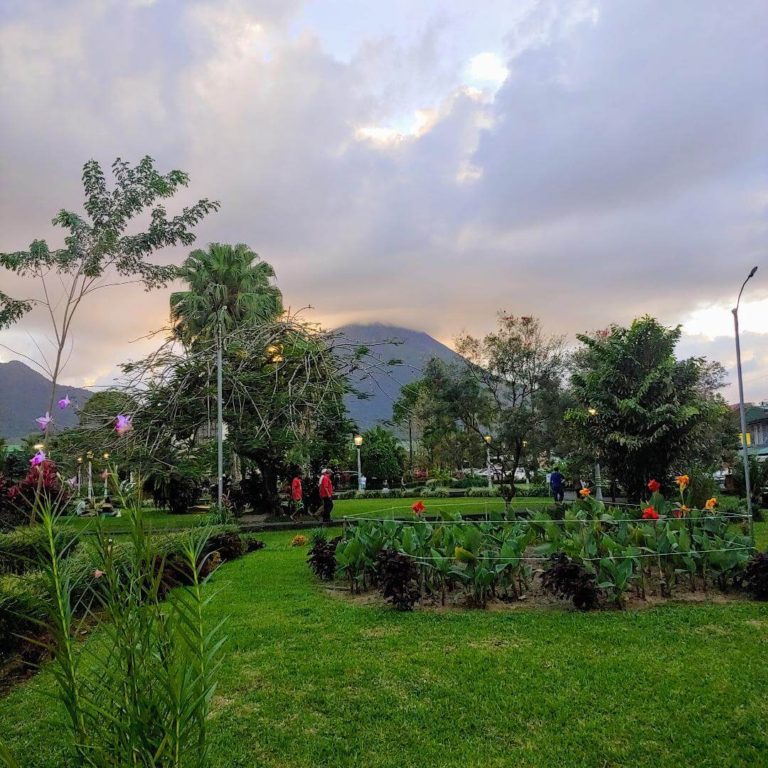
La Fortuna Costa Rica Travel Guide
- July 21, 2024
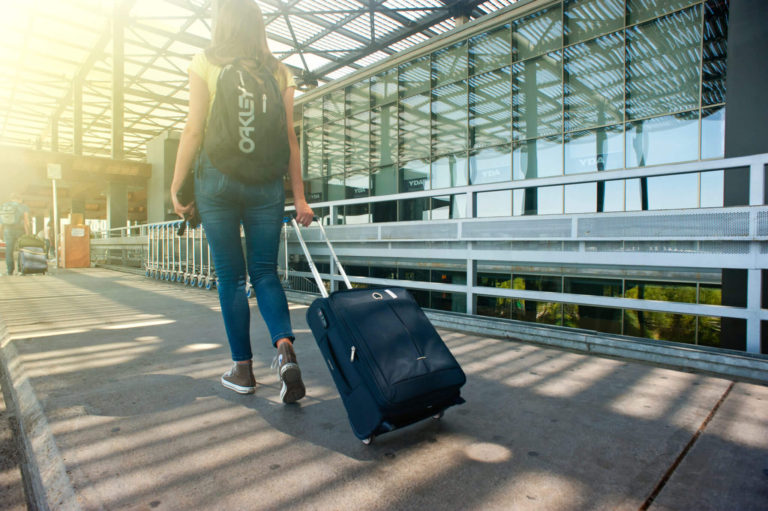
The Ultimate Travel Packing Guide
- July 14, 2024
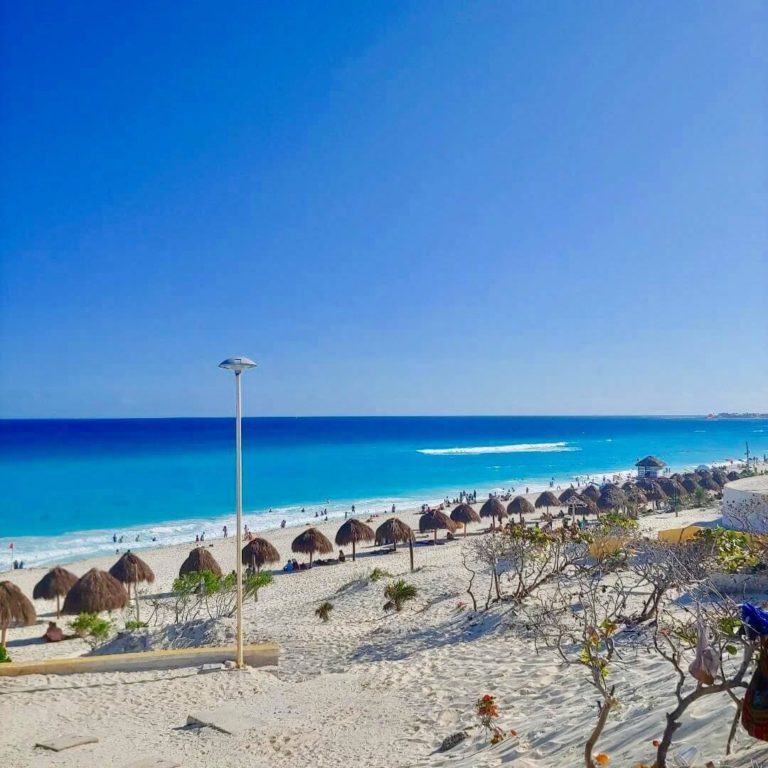
Ultimate Cancun Travel Guide and Top Tips
- July 7, 2024

4 Best Islands to Visit in Hawaii for the First Time
- June 30, 2024
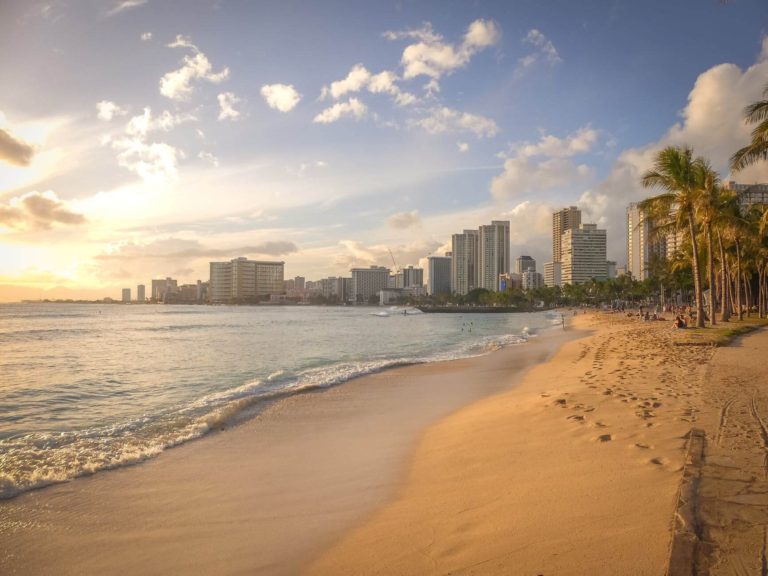
What to Pack for Hawaii:20 Essential Items
- June 16, 2024
Leave a Reply Cancel Reply
Your email address will not be published. Required fields are marked *
Name *
Email *
Add Comment
By using this form you agree with the storage and handling of your data by this website. *
Post Comment
Privacy Overview
sign up and keep track of your travel insurance events
The 6 Top Travel Emergencies and How To Deal With Them

Life is unpredictable and traveling even more so. The list of travel problems and travel emergencies that can ruin a vacation is long, but we’ve identified the big ones you should look out for.
If you’ve ever had a travel emergency, you might wonder if you’re experiencing something that no other traveler has ever encountered. The answer is no – by a long shot. Travel problems are all too common.
How do we know? We conducted a survey of travelers and asked them if they’ve encountered travel emergencies.
What sorts of emergencies do travelers most frequently encounter? Here’s what we found and how common the problems are:
1. Medical issues on a trip: 27% of travelers 2. Vehicle breakdowns: 22% 3. Lost belongings: 20% 4. Travel delays: 15% 5. Illness or other emergency back home: 15% 6. Natural disasters: 10%
Read below to see how travel insurance can help with many of these travel emergencies.
Top Travel Problems
1. medical issues: 27%.

You might be surprised to learn that medical emergencies top the list, but think about all the health problems that can occur on a trip.
Kids can get food poisoning from eating the wrong thing, preventing the family from taking or continuing their trip. Parents can cut their foot on a rock while swimming, or hikers can sprain an ankle during travel, which requires a trip to the hospital and some medical bills to follow. And that’s just the tip of the medical travel emergency iceberg.
The good news about travel problems is not necessarily that they’re preventable – they’re not, in many cases – but that they can be made a little less painful with travel insurance.
Generali travel insurance with medical coverage can help pay for medical treatment if you get sick or injured far from home.
Also, the Trip Cancellation and Trip Interruption provisions in Generali plans can reimburse you for prepaid non-refundable expenses when certain medical issues force you to change your travel plans.
Also read: Why You Might Need to Buy Medical Coverage Before You Travel
View this post on Instagram A post shared by Generali Travel Insurance (@generalitravel)
2. Vehicle problems: 22%

Car troubles, such as accidents, theft and vandalism, can be a real trip-wrecker. Those headaches can double when the vehicle is a rental car.
Fortunately, Generali’s travel insurance plans offer Rental Car Damage coverage as an optional add-on.
Learn more about insurance for rental car damage
3. Loss of personal belongings (luggage, clothes, money): 20%

Lost luggage can ruin a vacation. Lost passports and personal documents can bring a trip to a grinding halt.
Luckily, Generali travel insurance includes coverage for lost or destroyed baggage. Also, the travel assistance that comes standard with Generali plans can help arrange for replacement passports and other travel documents.
Also read: How to Keep Your Bags and Valuables Safe While Traveling
4. Strikes and travel delays: 15%

Speaking of bringing vacations to a grinding halt, nothing does that with quite the panache of a European air-traffic-controllers’ strike.
Once again, here comes travel insurance to assist, with coverage for travel delays and the travel assistance you need to get around the roadblocks and other travel obstacles.
Also read: Your Travel Delay Expenses Can be Reimbursed with Travel Insurance
5. Illnesses or emergencies back home: 15%

Everyone wants a vacation to be a carefree time, and even if everyone on the trip is doing the right thing, staying healthy and out of trouble, there’s no guarantee that things will be going along swimmingly back at the hacienda.
If and when trouble strikes back home, Generali’s Trip Interruption coverage can reimburse you for the unused portion of your trip and help arrange for transportation back to your loved ones at home in case of a covered event.
Also read: How Trip Insurance can Help if Your Trip is Interrupted
6. Natural disasters: 10%

Severe storms, wildfires, earthquakes, hurricanes and more can happen without warning, wreaking havoc with entire cities or countries – not to mention your travel plans.
In cases like these, travel insurance with coverage for Trip Interruption and worldwide travel assistance services can help protect your trip and travelers.
Also read: Hurricane Travel Insurance – What You Need to Know
There may be little you can do to avoid some of the most common travel problems, but fortunately, with travel insurance from Generali you can Travel Smarter ™ and there doesn’t have to be an unhappy ending. Generali has the resources you need to have on your side whenever you travel.
Travel Resources

Average Customer Rating:

Thank you for visiting csatravelprotection.com
As part of the worldwide Generali Group we have rebranded our travel protection plans to Generali Global Assistance, offering the same quality travel insurance, emergency assistance and outstanding customer service as you've come to rely on for the last 25 years. Welcome to our new website!
Final step before you're signed up
Please verify that you're human.
Security Alert May 17, 2024
Worldwide caution.
- Travel Advisories |
- Contact Us |
- MyTravelGov |
Find U.S. Embassies & Consulates
Travel.state.gov, congressional liaison, special issuance agency, u.s. passports, international travel, intercountry adoption, international parental child abduction, records and authentications, popular links, travel advisories, mytravelgov, stay connected, legal resources, legal information, info for u.s. law enforcement, replace or certify documents.
Share this page:
Learn about your destination
Take 90 seconds for safer travel.
Travel Advisory Levels
Enroll in step.

Subscribe to get up-to-date safety and security information and help us reach you in an emergency abroad.
Recommended Web Browsers: Microsoft Edge or Google Chrome.
External Link
You are about to leave travel.state.gov for an external website that is not maintained by the U.S. Department of State.
Links to external websites are provided as a convenience and should not be construed as an endorsement by the U.S. Department of State of the views or products contained therein. If you wish to remain on travel.state.gov, click the "cancel" message.
You are about to visit:
Survey: 77% of travelers plagued by travel problems amid booming season; more than half saw higher prices
Advertiser disclosure.
We are an independent, advertising-supported comparison service. Our goal is to help you make smarter financial decisions by providing you with interactive tools and financial calculators, publishing original and objective content, by enabling you to conduct research and compare information for free - so that you can make financial decisions with confidence.
Bankrate has partnerships with issuers including, but not limited to, American Express, Bank of America, Capital One, Chase, Citi and Discover.
How We Make Money
The offers that appear on this site are from companies that compensate us. This compensation may impact how and where products appear on this site, including, for example, the order in which they may appear within the listing categories, except where prohibited by law for our mortgage, home equity and other home lending products. But this compensation does not influence the information we publish, or the reviews that you see on this site. We do not include the universe of companies or financial offers that may be available to you.
- Share this article on Facebook Facebook
- Share this article on Twitter Twitter
- Share this article on LinkedIn LinkedIn
- Share this article via email Email

- • Personal finance
- • Financial planning
- Connect with Lane Gillespie on LinkedIn LinkedIn

- Connect with Tori Rubloff on LinkedIn LinkedIn
The Bankrate promise
At Bankrate we strive to help you make smarter financial decisions. While we adhere to strict editorial integrity , this post may contain references to products from our partners. Here's an explanation for how we make money .
Founded in 1976, Bankrate has a long track record of helping people make smart financial choices. We’ve maintained this reputation for over four decades by demystifying the financial decision-making process and giving people confidence in which actions to take next.
Bankrate follows a strict editorial policy , so you can trust that we’re putting your interests first. All of our content is authored by highly qualified professionals and edited by subject matter experts , who ensure everything we publish is objective, accurate and trustworthy.
It's why over 100 million people — not to mention top publications such as The New York Times, Wall Street Journal and CNBC — depend on Bankrate as a trusted source of financial information every year.
Editorial integrity
Bankrate follows a strict editorial policy , so you can trust that we’re putting your interests first. Our award-winning editors and reporters create honest and accurate content to help you make the right financial decisions.
Key Principles
We value your trust. Our mission is to provide readers with accurate and unbiased information, and we have editorial standards in place to ensure that happens. Our editors and reporters thoroughly fact-check editorial content to ensure the information you’re reading is accurate. We maintain a firewall between our advertisers and our editorial team. Our editorial team does not receive direct compensation from our advertisers.
Editorial Independence
Bankrate’s editorial team writes on behalf of YOU – the reader. Our goal is to give you the best advice to help you make smart personal finance decisions. We follow strict guidelines to ensure that our editorial content is not influenced by advertisers. Our editorial team receives no direct compensation from advertisers, and our content is thoroughly fact-checked to ensure accuracy. So, whether you’re reading an article or a review, you can trust that you’re getting credible and dependable information.
How we make money
You have money questions. Bankrate has answers. Our experts have been helping you master your money for over four decades. We continually strive to provide consumers with the expert advice and tools needed to succeed throughout life’s financial journey.
Bankrate follows a strict editorial policy , so you can trust that our content is honest and accurate. Our award-winning editors and reporters create honest and accurate content to help you make the right financial decisions. The content created by our editorial staff is objective, factual, and not influenced by our advertisers.
We’re transparent about how we are able to bring quality content, competitive rates, and useful tools to you by explaining how we make money.
Bankrate.com is an independent, advertising-supported publisher and comparison service. We are compensated in exchange for placement of sponsored products and services, or by you clicking on certain links posted on our site. Therefore, this compensation may impact how, where and in what order products appear within listing categories, except where prohibited by law for our mortgage, home equity and other home lending products. Other factors, such as our own proprietary website rules and whether a product is offered in your area or at your self-selected credit score range, can also impact how and where products appear on this site. While we strive to provide a wide range of offers, Bankrate does not include information about every financial or credit product or service.
The majority of Americans are planning to leave their day-to-day stress behind to travel this year. However, it’s likely their travel plans will introduce new stressors.
Nearly two in three (63 percent) U.S. adults have traveled or plan to travel for leisure this year, according to a new Bankrate survey. Of the 32 percent of U.S. adults who already have traveled for either leisure or business this year, something went wrong for many of them: 77 percent have run into a travel-related problem.
Those issues range from higher prices than they’re accustomed to (53 percent), long waits (25 percent), poor customer service (24 percent), canceled or disrupted plans (23 percent) and hard-to-find availability (23 percent).
After surging last year when COVID-19 travel restrictions eased, pent-up demand for travel still hasn’t slowed. But with that demand, travelers may have to combat higher prices, in part due to inflation and tighter availability when booking plane tickets, hotels and other travel essentials.
Travel demand is even higher this year, and with the travel industry struggling to keep up, high prices aren’t likely to be the only problem. Further delays, cancellations and crowded conditions are expected. — Ted Rossman | Bankrate Senior Industry Analyst
Bankrate’s 2023 travel issue insights
- Leisure travel is even more popular this year than in 2022. 63% of U.S. adults have traveled or plan to travel for leisure in 2023. 32% have traveled already by early June and 46% plan to travel before the end of the year. In 2022, 58% of U.S. adults planned to travel for leisure or already had traveled by July 2022.
- The majority of upcoming travelers are worried about possible issues. 82% of people planning to travel for leisure or business later this year say they are worried about travel-related problems. That includes 55% with worries over high prices, 35% over long waits, 29% over canceled or disrupted plans, 28% over hard-to-find availability and 23% over poor customer service.
- Travel costs are creeping up. 28% of leisure travelers plan to spend more in 2023 than they did in 2022. On the other hand, 21% plan to spend less in 2023 due to economic concerns.
- Many travelers have a big budget. 44% of U.S. adults who have traveled or anticipate leisure traveling in 2023 have spent or plan to spend at least $1,000. 16% have or plan to spend at least $5,000.
Nearly 2 in 3 Americans plan to travel in 2023
Whether it’s renting a car for a quick road trip in-state or booking a flight for a luxury international getaway, 63 percent of U.S. adults plan to travel for leisure this year — 32 percent have already taken a trip by early June 2023 and 46 percent plan to travel before the end of the year (with some overlap between those two groups).
The pent-up urge to travel after COVID-19 has gotten even stronger over the last year: 58 percent of U.S. adults had traveled or planned to travel in July 2022, according to Bankrate.
“Travelers should brace for another busy summer travel season. I thought a lot of people got the travel bug out of their system last year, as the pandemic receded, and I expected high inflation to contribute to a decline in travelers this year. But that doesn’t seem to be the case,” Bankrate Senior Industry Analyst Ted Rossman said.
Source: Bankrate survey, June 6-9, 2023
Additionally, 23 percent of people have or plan to take a business trip this year, including 12 percent who already have gone on one and 14 percent who plan to do so later in the year.
Leisure travelers in 2023 sway younger and wealthier. Gen Zers and millennials are the most likely of any generation to travel for leisure this year:
- Millennials (ages 27-42): 69 percent
- Gen Z (ages 18-26): 68 percent
- Gen Xers (ages 43-58): 60 percent
- Baby boomers (ages 59-77): 58 percent
Similarly, households with a six-figure income or more are 34 percentage points more likely to have gone on or be planning a vacation than households who earn below $50,000 a year:
- $100,000 a year or more: 85 percent
- $80,000-$99,999 a year: 77 percent
- $50,000-$79,999 a year: 67 percent
- Less than $50,000 a year: 51 percent
More than half of travelers have experienced higher-than-usual prices this year
More people traveling since 2022 may be good for a rebounding travel economy, but for consumers, it means more bottlenecks in airports, train stations, freeways — and plenty of headaches.
More than three in four (77 percent) U.S. adults who have already traveled this year experienced a travel-related problem. Most commonly, 53 percent of people experienced higher prices than they’re accustomed to:
Source: Bankrate survey, June 6-9, 2023 Note: Of U.S. adults who have already traveled in 2023
Other travel woes include long waits at airport security, restaurants, hotels, tourist attractions and other services (25 percent); poor customer service (24 percent); difficulty finding availability for lodging, rental cars, airlines and others services (23 percent); and canceled and disrupted plans for flights, delays, lost luggage and more (23 percent). Only 23 percent of people say they haven’t experienced any travel-related problems.
Business travelers are even more likely to have run into issues: 87 percent of business travelers say they experienced a problem — 10 percentage points more than leisure travelers.
Over 4 in 5 upcoming travelers are worried about running into a problem while traveling
More than four in five (82 percent) U.S. adults who plan to travel in 2023 are worried about travel-related problems. Most commonly, 55 percent of travelers are concerned about higher prices:
Source: Bankrate survey, June 6-9, 2023 Note : Of U.S. adults who are planning on traveling in 2023
Other concerns for upcoming travelers include long waits (35 percent), canceled or disrupted plans (29 percent), difficulty finding availability (28 percent) and poor customer service (23 percent). A little less than one in five (18 percent) upcoming travelers aren’t worried about potential travel problems.
Over 1 in 4 leisure travelers plan to spend more in 2023 — many plan to spend at least $1,000
Perhaps in anticipation of higher prices, 28 percent of leisure travelers plan to spend more in 2023 than they did last year — 44 percent of American leisure travelers plan on spending at least $1,000. Some (16 percent) plan to spend at least $5,000 on leisure travel.
The percentage of Americans willing to spend at least $1,000 on travel comes after a January 2023 Bankrate survey found that 57 percent of U.S. adults wouldn’t pay for an unplanned $1,000 emergency expense from their savings. Also, more than two in three (68 percent) said inflation was causing them to save less.
In contrast, 21 percent of leisure travelers said they plan to spend less on leisure travel in 2023 due to economic concerns:
Source: Bankrate survey, June 6-9, 2023 Note: Of U.S. adults who are leisure travelers in 2023
Amid eagerness to travel, one in five (20 percent) leisure travelers say they may be willing to use savings to fund their trip this year, 22 percent are more excited to travel this year than they were prior to the pandemic, and 7 percent say they are willing to take on debt to travel.
Additionally, one in five (20 percent) leisure travelers plan to use rewards points or miles more frequently in the future, a tactic Rossman recommends.
“The best way to fight back against high travel costs is to redeem your credit card rewards, frequent flier miles and hotel points,” Rossman said.
3 travel tips to save this summer
With some travelers planning to spend $1,000 or more this summer, families may consider dipping into savings or saving for their summer vacation in advance. But you don’t need to spend a lot in order to get some well-deserved rest and relaxation. Consider these tips when you make your itinerary this summer:
- Flexibility is key. For those travelers who have the option, Rossman recommends being flexible as they make plans this summer. “If you can choose from a wider variety of dates and destinations, you’ll have more opportunities to save versus being locked into a certain place at a certain time,” he said.
- Make use of your travel rewards. One in five travelers plan to use more reward points or miles from airline credit cards in the future. Travel credit cards can be an easy way to save money on flights and receive perks like free checked bags and priority boarding, which can ease some of the stress when flying during the summer. “Keep in mind that many credit cards offer valuable travel insurance protections that can help you if your trip is canceled or delayed,” Rossman said.
- Utilize deal websites. Online aggregators can help you shop between pricey airlines , hotels, rental cars and more to help you find the best deal. Trying to find last minute tickets? Some aggregators specialize in low-cost tickets for flights leaving as soon as that weekend.
Methodology

Related Articles

8 ways to start saving for next summer’s vacation now

Survey: Holidays bring spending stress for most Americans

Travel vs. savings: Many Americans are prioritizing wanderlust amid economic uncertainty

Americans are still worried about affording holiday airfares despite slowing inflation
- Skip to content
- Accessibility
Travel updates
We want to get you the information you need so you can plan your journey.
Travelling now?
Live traffic and incident information from Traffic England
Travel alerts (breaking news)
Updates on active major incidents that may impact your journey.
Travelling later?
Build your own traffic report about issues on our network that may impact your journey now or in the future.
Daily closure report
Advance notification of full closures on England’s network. Now filterable online (.XLS file still available for those that need it).
Abnormal loads
Application forms and guidance material useful when wishing to make an abnormal loads movement by road in England.
Motorway service access guides
The guides will help you plan where to stop for a break at any one of the 114 motorway service areas across England.
Follow us on social media
Our social media channels give you important information about using our roads safely and help you see what is happening on our road network.
Mobile services
We provide a range of mobile services designed to allow you to stay in touch with our latest information and traffic updates on the move.
Keep up-to-date
Sign up to email updates to keep you informed about roadworks and incidents on our network.
Useful Links
- Traffic information RSS feeds
- Commercial vehicles
- The Orwell Bridge
- Advice for recovery operators on our motorway network
- Network claims
For traffic flow information please visit Traffic England

Watch: Tourists overwhelm Greek island of Santorini. Locals want to limit visitors

Tourism has risen in Greece and many locals are not quite happy with the influx of visitors.
Curious voyagers are especially making their way to Santorini, about 297 miles south of Athens, to get a glimpse of the island's beauty in its natural state.
One of the most famous islands in the world, Santorini is actually a group of islands: Thira, Thirassia, Aspronissi, Palea and Nea Kameni in the southernmost part of the Cyclades, according to Visit Greece , a government tourism website.
The website says that visitors can enjoy local dishes, a drink or a coffee while taking in the scenery of an active volcano.
Your Kids: The Best Travel Accessory
Santorini locals push for an end to mass tourism
Although the picture-perfect sights have made Santorini a popular tourist destination some locals are hoping to stop the massive travel.
Crowds gather daily waiting to take selfies and pictures during the island's picturesque sunset.
"This has been my dream since high school," American tourist Maria Tavarez, 40 told Reuters .
But for many of Santorini's 20,000 permanent residents, the once idyllic island of quaint villages and pristine beaches has been ruined by mass tourism.
As protests against excessive tourism erupt in other popular holiday destinations, including Venice and Barcelona , Santorini represents one of the starkest examples of how hoards of visitors can impact a place.
Authorities on the island have joined other tourism hot spots in calling for a cap on visitors. Greece is likely to hit a new record for tourism in 2024, surpassing the 33 million tourists in 2023. Inbound travelers rose 20% in the January-May period, according to the Bank of Greece , and overall tourism revenues are up 16%.
In Santorini, the growing number of foreign tourists – some 3.4 million visited the island last year, according to Mayor Nikos Zorzos – is putting pressure on the island's outdated infrastructure and are pricing islanders out of the housing market.
Zorzos says he has been pushing authorities for years not to allow a single extra bed on the island and has proposed a cap on the number of cruise ship visitors to 8,000 a day, down from around 17,000.
"It is in the best interest of our land for there to be a limit," he said.
Contributing: Reuters
Ahjané Forbes is a reporter on the National Trending Team at USA TODAY. Ahjané covers breaking news, car recalls, crime, health, lottery and public policy stories. Email her at [email protected] . Follow her on Instagram , Threads and X (Twitter) @forbesfineest.
- Share full article
Advertisement
Supported by
NASA Aims to Restore Space Station Traffic After SpaceX and Boeing Problems
With the Falcon 9 rocket set to fly again, and testing of the Starliner capsule progressing, the agency is seeking to turn the page on a brief, troubled chapter in orbit.

By Kenneth Chang
NASA officials on Friday said they expected congestion at the International Space Station in the coming month, following a couple of weeks in which it seemed that the agency’s ability to transport astronauts to and from orbit was stuck in a holding pattern.
But the officials portrayed the orbital traffic jam as a good thing.
“We have never had so many vehicles and so many options,” Ken Bowersox, the associate administrator who leads NASA’s space operations mission directorate, said during a news conference on Friday. “It complicates our lives, but in a really good way.”
Operations at the space station have been more eventful than usual lately. A new Boeing spacecraft experienced propulsion problems en route to the space station . The astronauts on the station had to shelter for a while after a defunct Russian satellite disintegrated . A couple of spacewalks were called off because of problems with the spacesuits . And the question of when SpaceX could next fly more astronauts emerged after a rocket’s failure in orbit .
Those problems may now be clearing up.
Agency officials said the next launch of a SpaceX Crew Dragon spacecraft, the ninth mission by SpaceX to take four astronauts for a six-month stay at the space station, or Crew-9, is scheduled for no earlier than Aug. 18.
But before that crew can head to space, the plan is for Starliner, a troubled spacecraft built by the aerospace giant Boeing that is now docked at the space station, to finally return to Earth with two NASA astronauts. The astronauts on the Starliner test flight, Suni Williams and Butch Wilmore, have been on the space station for weeks longer than originally planned as engineers diagnosed issues with the spacecraft’s propulsion system.
After the next Crew Dragon launch, another Crew Dragon, which is now docked at the space station, is scheduled to bring home four of the station’s current occupants, ending their six-month stay.
NASA has to juggle the comings and goings because there are only two ports at the space station where the Crew Dragon and Starliner can dock. With Starliner and one Crew Dragon already there, someone has to leave before the next Crew Dragon can arrive.
“I’ve got to take off a vehicle,” said Dana Weigel, the program manager for I.S.S. at NASA. “And so our plan is undock Starliner first to free up a port.”
During an earlier news conference on Thursday, Steve Stich, the program manager of NASA’s commercial crew program, and Mark Nappi, who leads the Starliner efforts at Boeing, said they were closing in on understanding what had gone wrong with Starliner’s propulsion system, which caused some thrusters to malfunction as it approached for docking in June.
Ground tests of a Starliner thruster indicated that the buildup of heat had caused Teflon seals to bulge and constrict the flow of propellant. Meanwhile, examination of a test version of a Starliner service module — a cylindrical component below the capsule where the astronauts sit — revealed that seals in the helium system had degraded because of exposure to propellant vapor.
The spacecraft’s problems followed a series of earlier setbacks for Starliner, thwarting NASA’s goal of having two companies providing rides for its astronauts.
Competition, the space agency believes, will help keep prices in check . It also provides a backup in case something goes wrong. SpaceX, the other company that NASA hired, has been launching NASA astronauts to space for the past four years.
NASA and Boeing officials insisted there was no danger to Ms. Williams and Mr. Wilmore. They said they wanted to take the time to study the capsule’s problems in detail so that they could be fixed for future missions.
While Boeing has faced heavy scrutiny over the issues with Starliner, SpaceX also suffered a failure, after years of success for its Falcon 9 rockets and Crew Dragon spacecraft.
On July 11, during a routine launch of the company’s Starlink satellites, the second stage of a Falcon 9 rocket experienced a liquid oxygen leak and deployed the satellites in the wrong orbit.
This was the first failure of a Falcon 9 rocket since 2016, when one exploded on the launchpad. Between that explosion, which destroyed an Israeli satellite, and the malfunction on Thursday, SpaceX had enjoyed a streak of more than 300 successful Falcon 9 flights.
In an update on Thursday , SpaceX said the leak had occurred in a line used by a liquid oxygen pressure sensor. The short-term fix is to remove the line and the sensor.
On Thursday, the Federal Aviation Administration gave SpaceX permission to resume Falcon 9 launches after it concluded that the problem that had caused the failed flight had not posed a danger to the public. The next Falcon 9 launch, of another batch of Starlink satellites, is scheduled for Saturday at 12:21 a.m. Eastern time from Cape Canaveral Space Force Station.
Mr. Stich said NASA was working with SpaceX to ensure that the design fixes for the rocket were sufficient to ensure the safety of the astronauts on the next Crew Dragon mission.
The Starliner docked at the space station also now faces one more critical test this weekend. Its thrusters will fire briefly, allowing engineers to evaluate their performance and determine if the helium leaks have worsened. If that test goes well, NASA will perform a final review before approving Starliner’s return to Earth.
Kenneth Chang, a science reporter at The Times, covers NASA and the solar system, and research closer to Earth. More about Kenneth Chang
What’s Up in Space and Astronomy
Keep track of things going on in our solar system and all around the universe..
Never miss an eclipse, a meteor shower, a rocket launch or any other 2024 event that’s out of this world with our space and astronomy calendar .
Scientists working with NASA’s Perseverance rover state emphatically that they are not claiming to have discovered life on Mars. But they are very excited about what they found on this rock .
When a NASA spacecraft passes over Shackleton Crater on the moon and peers in, it sees a sea of blackness and nothing more. Take a look at the moon’s most shadowy places .
With the Falcon 9 rocket set to fly again and testing of the Starliner capsule progressing, NASA is seeking to turn the page on a brief, troubled chapter in orbit.
For the 25th anniversary of the Chandra X-ray Observatory, NASA produced ghostly time-lapse videos of two centuries-old stellar eruptions.
Is Pluto a planet? And what is a planet, anyway? Test your knowledge here .
Commentary: Tourists have made Europe a nightmare. I was part of the problem but won’t be again

- Copy Link URL Copied!
Ten years ago, in an opinion article for the Los Angeles Times, Rick Steves advised readers to swallow their fears of terrorism and disease, “just get on the plane” and go see the world. And who am I to disagree with a beloved travel writer and fellow Norwegian American?
But after returning from a three-week trip seeing family and sites in Norway and Italy, my advice is a little different: Maybe don’t get on that plane, especially if you, like me, are concerned that tourists are ruining the world.

How Sedona, an epicenter of spiritual energy and Arizona tourism mecca, came to fear and loathe tourists
Day trippers from California, traffic jams and lack of housing for workers are fueling local fights over tourism and marketing.
Oct. 22, 2023
My advice has nothing to do with conflict or pestilence. Or perhaps it does, because from what I saw, the hordes of humans who burn tons of jet fuel flying to faraway places so they can trample on sites known for their beauty and history might qualify as pests.
The consequences of overtourism are well known, especially in the hapless places that are its targets: Cities built in a long-ago era or natural wonders become victims of their own charm, drawing far more people than they can handle. Pristine wildlife areas degrade, the markets and butcher shops that sustained locals give way to souvenir stores, and residents get crowded out as their homes are converted to short-term rentals. Increasingly, there is no offseason : Since pandemic restrictions were lifted, October crowds in European hotspots are what July was like 10 or 20 years ago, and July today is … apocalyptic.
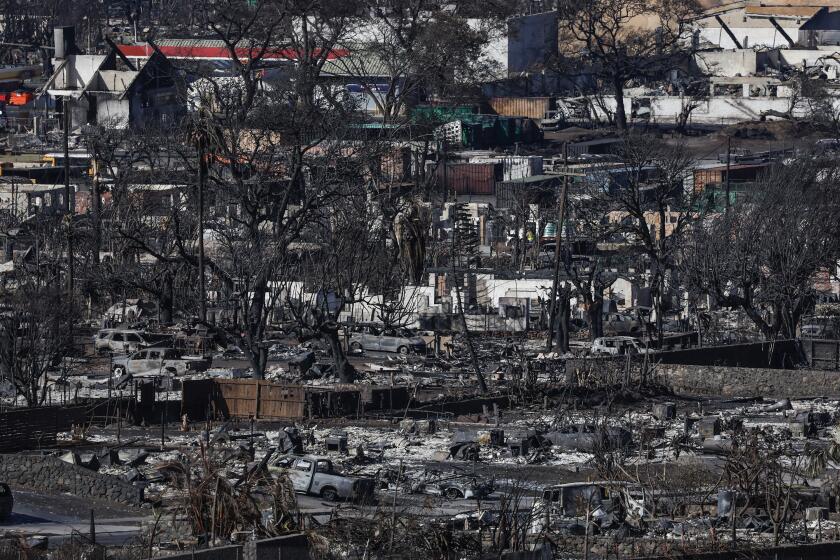
Opinion: How to rebuild Lahaina’s economy after the wildfire — without relying solely on tourists
Maui has long depended on tourism. After devastating fires, there’s a chance to set a new economic course for the island that incorporates the interests of native Hawaiians.
Aug. 22, 2023
Thankfully, overtourism can essentially fix itself. Being part of the problem, as I just was during a trip to Norway and Italy with my family, is such a miserable, money-sucking experience that it stirs the resolve never to do it again.
Take Rome’s Spanish Steps, where I saw la dolce vita clash with the tourist police state. There, the gorgeous, operatic wailings of Italian street performers were intermittently pierced by the whistling from street cops scolding anyone who dared to sit down on a blisteringly hot day. The crowds in Rome have become so bad, so incompatible with preserving structures that have survived hundreds and even thousands of years of human use, that it’s now illegal to sit down in certain places .
Perhaps this newfound hostility to loitering accrues to visitors’ benefit. The crush of people streaming toward sites like the Spanish Steps, and the harsh vigilance of guards, will ensure that most anyone who ventures there will want to leave as quickly as possible.
This was also sadly true of Venice, arguably Europe’s Exhibit A against overtourism. If there was a sector of the economy devoted to something other than tourism, I didn’t notice.
The resident population of Venice’s historic core has fallen below 50,000 , a level not seen since the Middle Ages. Much of the housing that once served locals is now rented out to visitors like me. Nothing screams old-world authenticity like the brightly dressed hordes wheeling luggage down the street or holding the most unnatural Instagram poses so they can show off their amazing lives.
Venice is finally pushing back. Last April, day-trippers to the city started having to pay a 5-euro entry fee , and large cruise ships have been banned from entering the Venice lagoon. Similarly, in Norway, Bergen (which is really the world’s most perfect city) caps cruise ship disembarkments to 8,000 passengers a day — and even under that limit, Bergen’s historic waterfront is easily overcrowded.
The good news is, for a taste of the post-pandemic travel experience, you don’t have to fly to Europe. Just drive down the 5 to Disneyland on a summer day, spend $800 on tickets for your family and stand around in the sun with a few thousand impatient strangers.
There, in Tomorrowland, you will perform the mental gymnastics I did at the Vatican: Tell yourself that this is beautiful and fun, damn it, because we paid for it, no matter the truth laid bare by your whining children, your burning skin and the suffocating claustrophobia while standing outside .
Next time I muster another trip, Norway could be on the table, since most of my late mother’s family is there. But as for sightseeing and serenity, nothing beats the spots known to locals here in California’s own mountains and deserts. Find me there.
More to Read

Commentary: A vacation from politics? After the Trump shooting, no thanks. I need to be back in my country
July 15, 2024
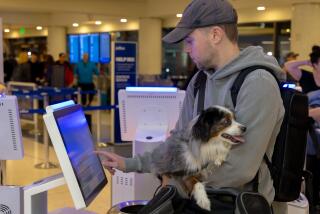
Commentary: Record-breaking holiday travel lightens our spirits but darkens the climate picture
Dec. 29, 2023

Letters to the Editor: How tourism ruins life for locals, and not just in Hawaii
Sept. 4, 2023
A cure for the common opinion
Get thought-provoking perspectives with our weekly newsletter.
You may occasionally receive promotional content from the Los Angeles Times.

Paul Thornton is the Los Angeles Times’ letters editor.
More From the Los Angeles Times

Calmes: Nancy Pelosi wants you to know she wields power, but she won’t tell all
Aug. 9, 2024

Litman: How an Arizona prosecutor’s mistake may have stopped Trump’s fifth criminal indictment

Opinion: Have the 2024 Olympics really changed the game for women in sports?

Opinion: Nicolás Maduro’s landslide defeat hasn’t dislodged him. Is there still hope for Venezuela?
Aug. 8, 2024
- Skip to global NPS navigation
- Skip to this park navigation
- Skip to the main content
- Skip to this park information section
- Skip to the footer section

Exiting nps.gov
Alerts in effect.
- Learn About the Park
- News Releases
News Release
Fire update for august 5, 2024.
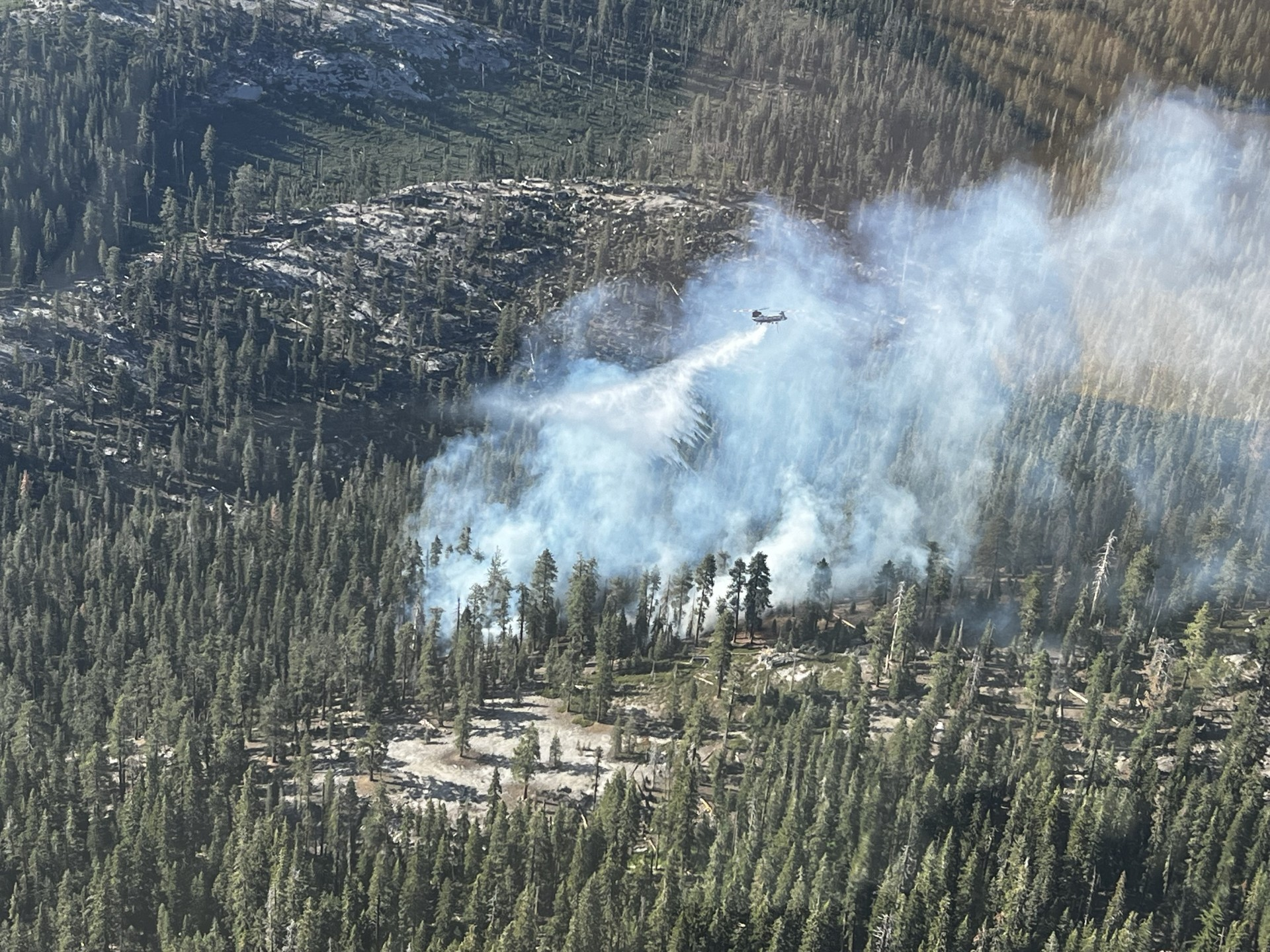
P. Bevington
Yosemite National Park continues to see sporadic thunderstorm activity and the weather forecast calls for temperatures well above average with low humidities through Wednesday. Yosemite Fire has responded to six fires since August 2; these fires are in high elevation wilderness and fire managers are assessing conditions and response. The Middle, Forsyth, and Morrison fires have firefighters regularly providing updates on conditions.
Yosemite National Park is a fire-adapted ecosystem. The overall strategy for all wildland fires is to provide for the safety of employees, the public, and to protect and enhance natural and cultural resources.
- Location: Near the Middle Fork of the Tuolumne River, west of White Wolf.
- Discovery Date: August 4, 2024
- Size: 2 acres
- Containment: 0%
- Cause: Lightning
- Location: Near Little Yosemite Valley in the 2014 Meadow Fire footprint.
- Discovery Date: August 2, 2024
- Size: 0.1 acre
- Location: One mile north of Morrison Creek.
- Location: North of Little Yosemite Valley above Echo Valley, near Merced Lake.
- Location: In the footprint of the 2020 Blue Jay Fire, near White Wolf.
- Location: One half mile east of Alder Falls.
- Containment: 100%
Last updated: August 5, 2024
Park footer
Contact info.
209/372-0200
Stay Connected
Travel alert for Australians visiting United Kingdom amid ongoing riots after Southport stabbing attack
Smart Traveller has issued a travel alert to Australians in the UK warning them to avoid areas where protests are occurring.
Rioting has broken out in cities across the UK amid online misinformation in the wake of the Southport stabbing which killed three young girls.
What's next?
Several other countries have issued their own alerts as the British government sets up a "standing army" of specialist police to deal with the violence.
Australians have been urged to exercise a high degree of caution when travelling to the United Kingdom due to potential violence stemming from ongoing protests and rioting.
Violence broke out in cities across the nation over the past week following a stabbing attack at a Southport dance class which left three girls dead and more injured.
Three children aged six, seven and nine were killed at a Taylor Swift-themed dance workshop taking place during England's summer school holidays .
At least six other children and two adults were hospitalised following the incident. A 17-year-old boy has since been charged with three counts of murder and 10 counts of attempted murder .
Online misinformation in the wake of the attack claimed the suspect was Muslim and an asylum seeker, setting off a string of suspected far-right groups launching attacks on immigrant communities.
British Prime Minister Keir Starmer has since announced a "standing army" of specialist police would be set up to deal with the rioting and the hundreds of arrests so far.
The latest update to the Australian federal government's Smart Traveller website advised visitors to "avoid areas where protests are occurring due to the potential for disruption and violence".
"Public protests and events that draw large groups of people can turn violent, and can evolve into riots," the website said.
Australians travelling in the UK should "avoid all protests", "monitor the media for the latest information" and "follow instructions of local authorities" to stay safe.
The overall threat level for the UK has not been increased.
Former chief prosecutor for the Crown Prosecution Service NW England, Nazir Afzal, told the ABC's Radio National the violence was "very troubling".
"There's been a substantial amount of fear in large parts of the United Kingdom," he said.
"I don't want to exaggerate it, it's hundreds of people and not thousands of people that are engaged in these activities.
"It's not protest, it's criminality masquerading as protest.
"Yes, they've tried to burn down a couple of hotels that are housing asylum seekers, they've also tried to attack a mosque. But they've also been looting shoe shops, cake shops, vape shops, mobile phone shops, et cetera.
"The reality is that what we're dealing with is people using [an excuse] to cause as much havoc as they can."
Other countries, including Nigeria, Malaysia and Indonesia, have also issued their own travel alerts for the UK.
The Indonesian embassy in London issued an appeal to Indonesians in the UK at the weekend.
"Consider the urgency and increase vigilance [if] you have to travel or do activities outside the home," they said on social media.
"Avoid large crowds and places that have the potential to become gathering places for masses or groups of demonstrators."
A similar travel alert by Nigeria's Ministry of Foreign Affairs noted there was "an increased risk of violence and disorder".
"The violence has assumed dangerous proportions as evidenced by reported attacks on law enforcement agents and damage to infrastructure," they said in a statement.
"Avoid political processions and protests, rallies or marches … Be vigilant and self-aware at all times."
- X (formerly Twitter)
- Civil Unrest
- United Kingdom
- Unrest, Conflict and War
Microsoft, CrowdStrike outage disrupts travel and business worldwide
The problem was traced to an update by security company CrowdStrike, which said it had fixed the issue Friday morning.
A defective update to an obscure piece of security software knocked out computer systems around the globe Friday, causing widespread disruptions to travel, medical care and businesses of all stripes while revealing in stunning fashion the fragility of a world economy built on shared technology.
Airline passengers were stranded at airports as thousands of flights were canceled. Hospitals closed their doors to patients expecting routine appointments. Shoppers encountered self-checkout terminals showing the notorious Blue Screen of Death that pops up when Windows fails. Even the organizers of the upcoming Paris Olympics reported impacts to the delivery of uniforms.
The problem traced to an update issued for Windows computers by security firm CrowdStrike, the company said in a blog post. The company said at 6 a.m. Friday the problem had been identified and fixed, but by that point the effects had rippled around the world.
The effects of the outage were a reminder of how the global economy is dependent on computer systems that are vulnerable to everything from attacks by sophisticated hackers to bungled software updates. But while the problems were widespread, there was an element of randomness at play, too, depending on which companies in any given industry made use of the defective system.
CrowdStrike chief executive George Kurtz said he was “deeply sorry” to anyone affected by the global outage during an appearance Friday on NBC’s “Today” show and vowed to “make sure every customer is fully recovered.”
Many CrowdStrike systems are recovering and will soon be operational, Kurtz said, but “it could take some time for some systems that won’t automatically recover.”
The company’s problems follow a string of computer security incidents and service outages in recent years that have disrupted online services. Bruce Schneier, a security technologist who teaches at the Harvard Kennedy School, said the latest problem shows how brittle parts of the online world have become as companies have chased efficiency while sacrificing resiliency.
“This is one of hundreds of companies you’ve never heard of that are essential to the functioning internet,” Schneier said. He compared the situation to a house built in such a way that nailing a picture to the wall puts it at risk of collapsing.
CrowdStrike’s software is widely used around the world by businesses seeking to defend themselves from hackers. The problems Friday affected only computers running Microsoft’s Windows operating system, CrowdStrike said, leaving Apple computers and those using Linux unaffected.
While Windows is the operating system for hundreds of millions of personal PCs, it also runs on the computers behind the scenes that are vital to the operation of airlines, digital payment systems, emergency services call centers and other organizations.
Microsoft chief executive Satya Nadella said in a post on X that his company was working with CrowdStrike and Windows users “to provide customers technical guidance and support to safely bring their systems back online.”
CrowdStrike said in the blog post that the faulty file implicated in the more widespread outages had a timestamp equivalent to 12:09 a.m. Eastern time Friday. An unrelated Microsoft outage Thursday also caused problems.
Some of the most visible early effects of the outage were at airlines. Budget U.S. carriers Frontier and Sun Country disclosed in the early hours of Friday that they were experiencing disruptions, and the problems spread to major airlines and affected airlines overseas.
By 6:30 p.m. more than 4,400 flights had been canceled worldwide. Of that, more than 2,700 were flights operating into, within or out of the United States, according to FlightAware.com , an online flight-tracking website. More than 40,000 flights were delayed worldwide, with delays affecting more than 10,000 flights originating or ending in the United States.
United Airlines said the outage impacted several key systems: those used for checking in customers, calculating aircraft weight and operating call centers.
In the United States alone the impacts were similar to what might be expected during a major snowstorm. And even as airlines reported getting operations back up and running Friday morning, problems in the aviation system can take hours to fully resolve as crews and aircraft are left in the wrong cities.
John Cox and his wife found themselves spending more than a day at Reagan National Airport as they tried to get a flight home to North Carolina.
A technical issue Thursday evening prompted major airlines including Delta to delay service and reroute passengers. Then their 10:17 a.m. Friday flight to Charlotte was pushed to Saturday at noon. “It completely derailed our plans,” Cox said, slumped on a seat by the entrance of the airport.
“We’re going to end up spending a lot more money hanging around in D.C. than if we were back at home,” Cox said, before reclining in his seat and sighing. “There should be some compensation for the immense inconvenience that so many people are enduring.”
By Friday morning it had become clear that the effects were reaching a large number of industries and affecting government agencies.
The effects on medical providers stretched from the United States to Israel, with doctors losing access to electronic medical records and some hospitals postponing elective procedures.
Mass General Brigham, a nonprofit that operates one of the largest hospital systems in Massachusetts, said on its website that it was canceling all “non-urgent visits” at its hospitals and clinics Friday. The organization said its emergency departments remained open and were providing care for urgent appointments and procedures.
Alison Baulos said her father, Gary Baulos, was scheduled to have heart surgery Friday at Baptist Health Hospital in Paducah, Ky., but got a call at 3:30 a.m. that the procedure was canceled due to the outage.
Her father, a 73-year-old former Navy Seabee and AT&T technician, had just been diagnosed with eight blockages and an aneurysm, she said, and had spent Thursday night at a hotel close to the hospital.
“The doctor said he can’t be too active, he can’t raise his hands above his head,” Alison Baulos said. She said her father is taking it in stride. His reaction to the cancellation, she said, was, “all right, since we’re already out here I guess we can go to IHOP for breakfast.”
Danielle Carzell, a 35-year-old Atlanta resident, was scheduled to have her hip replaced Friday, a procedure she’s eagerly anticipated for months. Born with a genetic condition — her hips are “like mismatched puzzle pieces,” she said — she’s in constant pain and hoped the surgery would relieve it. But after waiting for hours at Emory St. Joseph’s Hospital, she was told the procedure would have to be rescheduled due to the outage.
“I have no idea when I’m going to be able to get my surgery now,” she said. “I have a 5-year-old that I just want to play with, and this outage is just ruining everything.”
Even in a sector that has suffered debilitating blows this year — notably the hacks of claims processor Change Healthcare and health system Ascension — experts were surprised by the scale of the impacts Friday.
“I was stunned to see this kind of ripple effect,” said Chris Cummiskey, a cybersecurity expert and former Department of Homeland Security official. While CrowdStrike is often seen as the gold standard in cyber protection, he said this event may call for reviewing their internal practices.
“You don’t want to hit one button and have this kind of worldwide meltdown occur,” Cummiskey said.
Television news stations in several countries were knocked off the air. In Australia, the outage left ABC News unable to deliver its usual evening news update. Instead it showed a special report on the disruption at Sydney airports.
Some emergency services also reported problems. The Alaska State Troopers reported that, starting at 9 p.m. Thursday local time, 911 call centers statewide were not working correctly. Service was restored around 4 a.m. Friday when dispatch centers switched to analog phone systems or partnered with dispatch centers that had not been impacted, according to the Alaska Department of Public Safety.
Federal officials scrambled to assess the situation and provide assistance. Anne Neuberger, a security and technology adviser to President Biden , said her day began on a call with the White House situation room at 4 a.m. as the government sought to determine the effects on its own systems and critical parts of the economy.
“It highlights both the degree to which our economies, our national security are now digital and interconnected in a fundamental way,” said Neuberger, speaking on a panel at the Aspen Security Forum in Colorado.
A White House official said that Biden himself was briefed on the outage and that the administration was in touch with CrowdStrike and affected entities. The White House will get “sector by sector updates throughout the day and is standing by to provide assistance as needed,” the official added.
Transportation Secretary Pete Buttigieg said in an interview on CNBC Friday that he expected airlines, ports and freight companies to be largely back on their feet by Friday. But he said the episode should prompt some soul searching about the vulnerability of the country to even seemingly minor technical problems.
“We’re certainly in a new era in terms of these risks,” Buttigieg said. “I think there will be a huge amount of after action assessment, after the dust settles and things get back to normal.”
Hannah Ziegler, Jeff Stein, Aaron Gregg, Adela Suliman and Julian Mark contributed to this report.


IMAGES
COMMENTS
10 common travel problems and their solutions. 1. Getting lost. Some people have fantastic spatial awareness, others not so much, but most people have got lost at least once in their life. It can be a horrible feeling — your heart beating faster as the panic starts to rise.
The Travel Troubleshooter is a weekly consumer column that solves travel problems. Missing cruise refunds, lousy airline service, car rental surcharges — it's all fair game for this feature. Each story presents a problem and fixes it in a quick Q&A format.
As a traveler, you'll encounter annoying travel problems like lost or heavy luggage, missing trains or buses, and language barriers. Here's how to solve them! By using our site you agree to our use of cookies. Read our Cookie Policy for details. Choose Experience. Online Programs ...
From time crunch and flight delays to waiting lines and cumbersome carry-on luggage, airplane travel can stress even the most nomadic traveler.It's easy to let the hassle get the best of people, but knowing how to manage airline obstacles will help relieve the tension and get you to your destination with minimal stress.Sharon Schweitzer, an international etiquette expert, author, and the ...
From sickness to sunburn, here are 10 of the most common travel problems to look out for (and how best to prevent them). 1. Being unprepared Photo credit: Lonely Planet. Before you head off abroad, you'll need to check what jabs are required. You'll be fine for most of Europe and North America, but for Asia, Africa and South and Central ...
5. Do pack a 'delay emergency' kit. While packing light is essential, make space for some essentials to account for one of the all-too-common travel problems: delays or other inevitable travel ...
9. Travel Sickness. Motion sickness can turn even the most scenic journey into a nauseating ordeal. To combat travel sickness, sit in the front or middle of vehicles, focus on the horizon, and avoid heavy meals before travel. Over-the-counter medications like Dramamine can also provide relief for mild cases.
Problem 6: Illness Abroad. Illness is one of the most common problems that travelers face when abroad. The unfamiliar environment, different climate, and exposure to new bacteria and viruses can take a toll on your health. It's essential to take preventive measures before you travel to avoid getting sick while abroad.
A couple days before you set off, check the oil and air pressure in your car's tires. In case something wonky happens, the Red Cross recommends packing an emergency preparedness kit and supplies (including water, nonperishable food, a flashlight, batteries, phone chargers, and a first aid kit).
Common Travel Problems and Last-Minute Solutions. Some travel-related problems are due to poor planning. Some are due to faulty systems and industry issues. Some are cultural. Some are situational, and some are just downright bad luck! We will cover them all in this section and give you a few tested solutions to make the most of a rotten situation.
I'm outlining 14 common travel problems. Keep reading to find out how to avoid them at all costs! Some of the Biggest Travel Problems: Solution: Always double-check your passport and visa to ensure they are not expired. Solution: Opt for a debit card with no ATM fees, securing better rates directly through the bank.
By Matthew Cullen. Aug. 7, 2022. For many travelers, cancellations and other snags have made this summer especially frustrating. To help you understand how we got here and how to make the most of ...
Widespread IT problems are impacting global travel. It's believed the issue stems, at least in part, from a software update issued by software company CrowdStrike on Microsoft Windows operating ...
Bring (or buy) inspect repellent if you're travelling to a location with mosquitos. Also, pack a basic first aid kit with a bandage, adhesive bandages, antiseptic cream/gel, paracetamol, allergy medication, and anti-nausea meds. I take this wherever I go, and a few times it saved the day. 24.
Top 9 common travel problems. 1. Getting Sick. We can get sick everywhere and anytime, unfortunately, but it is much worse if it happens when we travel. Therefore, to evade these travel problems related to sickness or minimize the chances, at least follow these SIMPLE TIPS: To avoid getting food poisoning on the plane, do not eat fish or food ...
Canceled flights, long delays, sky high prices, Brexit and 'carmageddon' - welcome to travel, 2022 style. A lack of staff and rocketing demand is creating the perfect storm for travel chaos ...
Problem: Nobody likes being stranded in an airport because of a delayed flight or missed connection and it can be one of the most expensive (not to mention soul-destroying) travel problems to put right. Solution: Be sure to keep in contact with your airline both before, and on, the day of flying. Check the status of the flight online and also ...
Lost belongings: 20%. 4. Travel delays: 15%. 5. Illness or other emergency back home: 15%. 6. Natural disasters: 10%. Read below to see how travel insurance can help with many of these travel emergencies.
So instead of using my last column of the year to get one specific traveler out of a jam, I've decided to rehash the crucial lessons I've learned — and hopefully help a few travelers along ...
Here are seven common travel problems you might face and how to solve them… 1. Finding Accommodation. Accommodation is the first thing on everyone's mind when traveling. The internet has made finding and booking places to stay during travels significantly easier. But there are problems such as: - False advertisement - Scams - Dirty ...
Level 1: Exercise Normal Precautions. July 26, 2023. Ghana Travel Advisory. Level 2: Exercise Increased Caution. November 20, 2023. Democratic Republic of the Congo Travel Advisory. Level 3: Reconsider Travel. July 9, 2024. Republic of the Congo Travel Advisory.
The percentage of Americans willing to spend at least $1,000 on travel comes after a January 2023 Bankrate survey found that 57 percent of U.S. adults wouldn't pay for an unplanned $1,000 ...
Travel updates We want to get you the information you need so you can plan your journey. Travelling now? Live traffic and incident information from Traffic England. Travel alerts (breaking news) Updates on active major incidents that may impact your journey. Travelling later? Build your own traffic report about issues on our network that ...
Tourism has risen in Greece and many locals are not quite happy with the influx of visitors. Curious voyagers are especially making their way to Santorini, about 297 miles south of Athens, to get ...
The spacecraft's problems followed a series of earlier setbacks for Starliner, thwarting NASA's goal of having two companies providing rides for its astronauts. Competition, the space agency ...
Day trippers from California, traffic jams and lack of housing for workers are fueling local fights over tourism and marketing. Oct. 22, 2023. ... Being part of the problem, as I just was during a ...
Cruise ships have doubled in size over the past two decades, a precedent that could lead to even bigger vessels plying our oceans in the future and bringing potential problems, a new report has ...
News Release Date: August 5, 2024 Yosemite National Park continues to see sporadic thunderstorm activity and the weather forecast calls for temperatures well above average with low humidities through Wednesday.
Travel alert for Australians visiting United Kingdom amid ongoing riots after Southport stabbing attack By Brianna Morris-Grant Posted Tue 6 Aug 2024 at 4:13am Tuesday 6 Aug 2024 at 4:13am Tue 6 ...
Some emergency services also reported problems. The Alaska State Troopers reported that, starting at 9 p.m. Thursday local time, 911 call centers statewide were not working correctly.